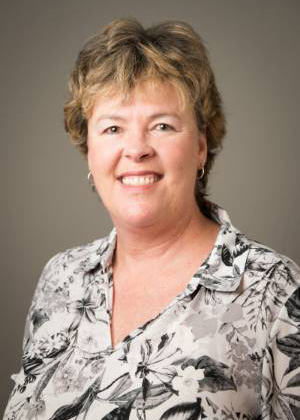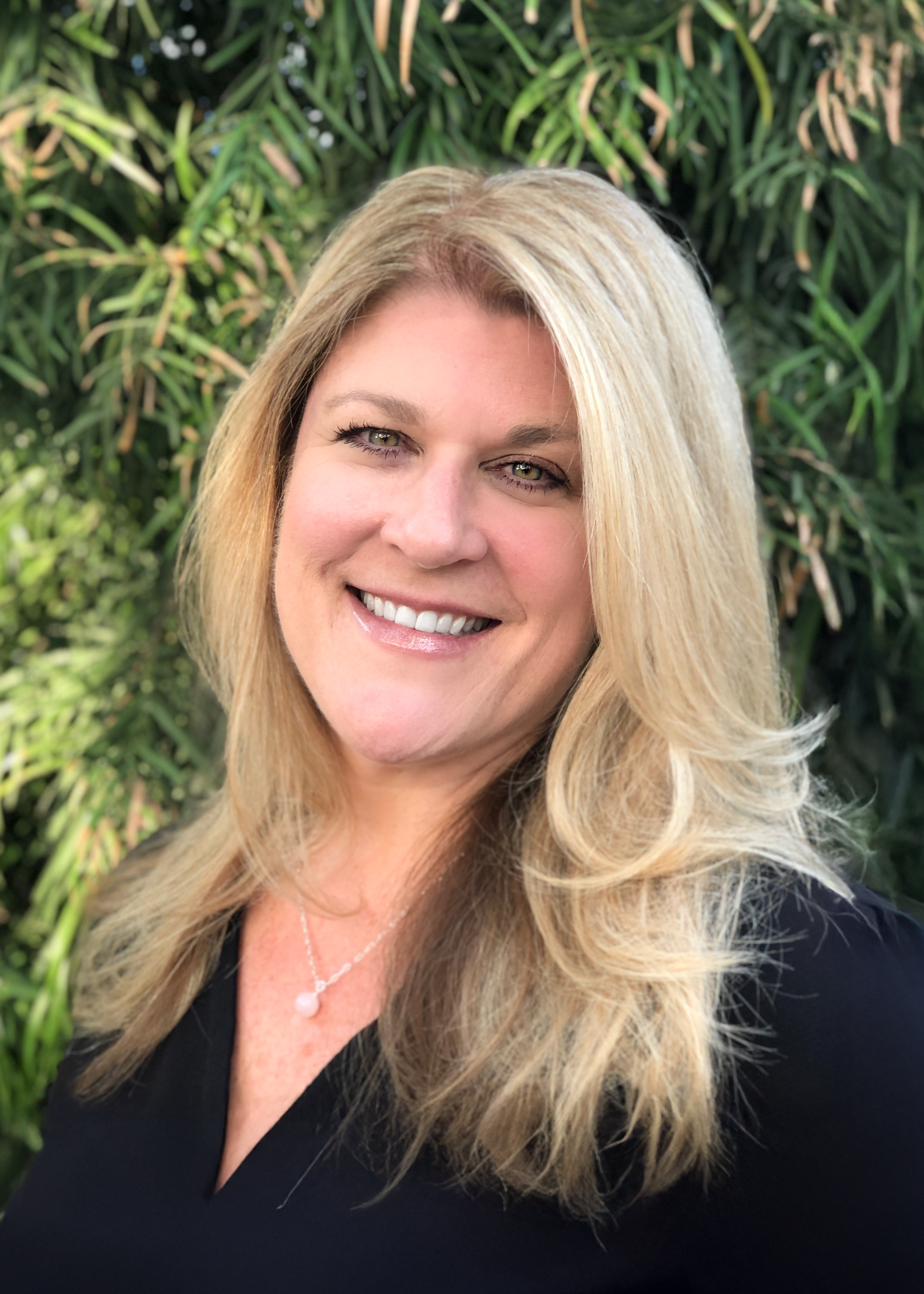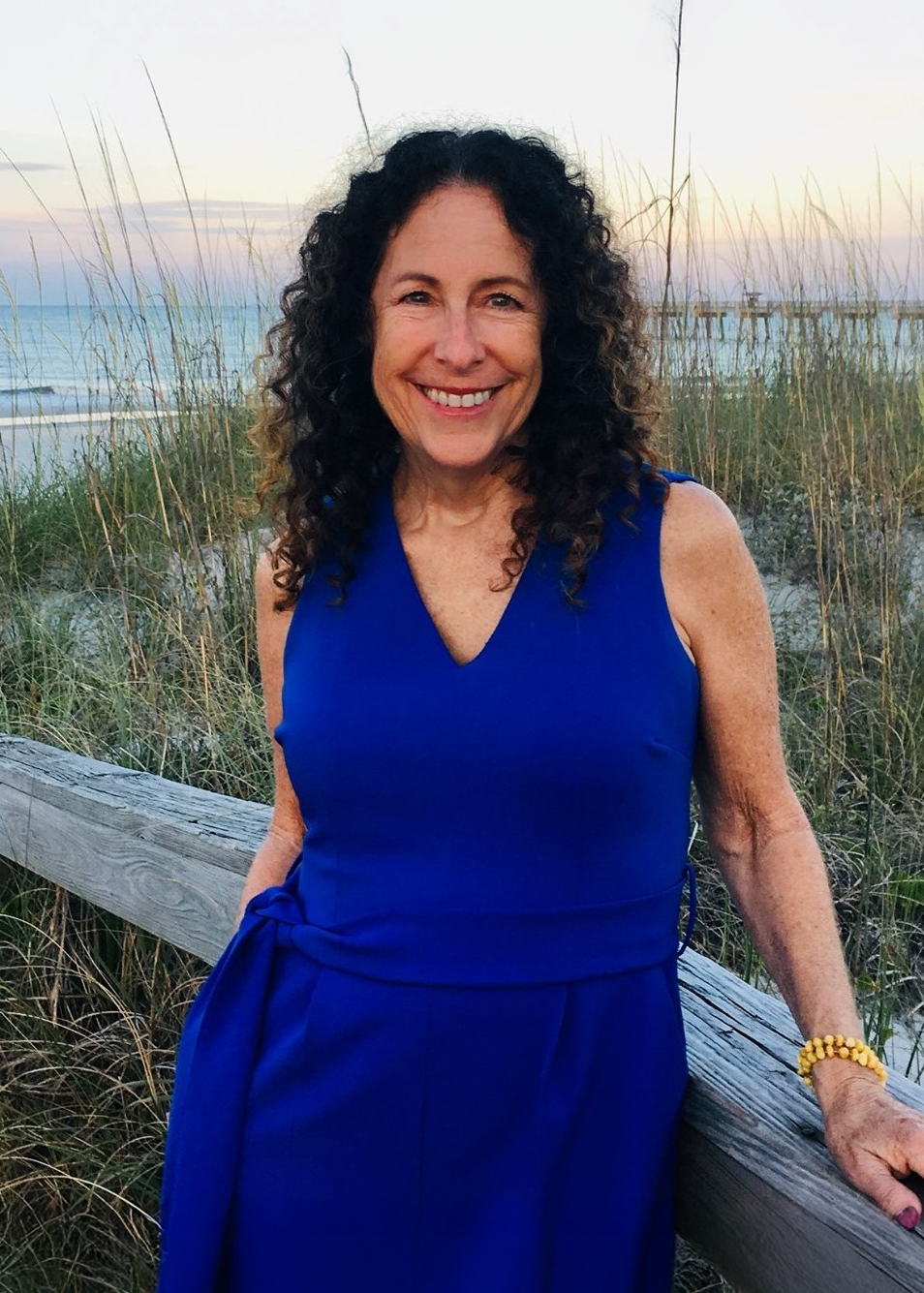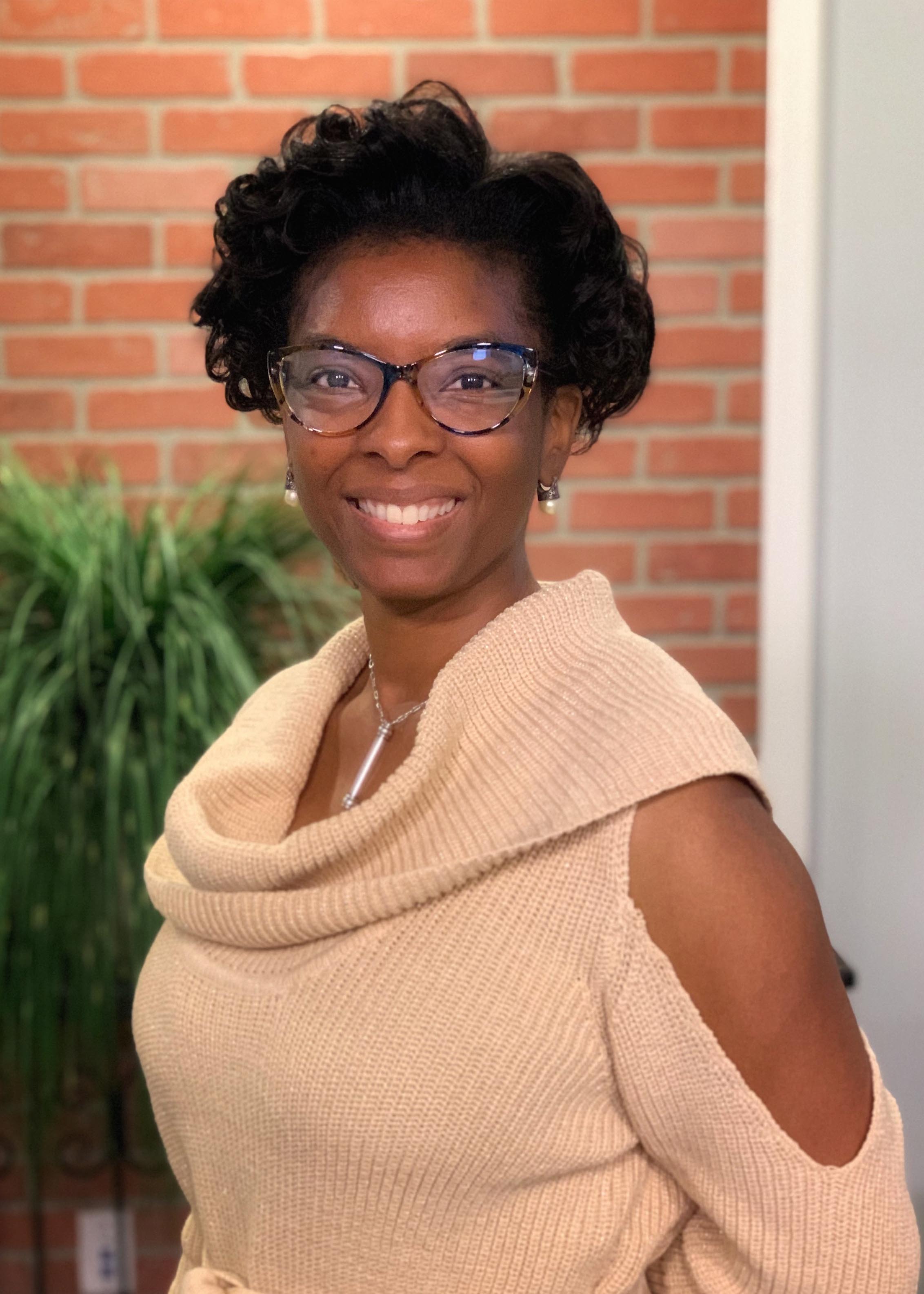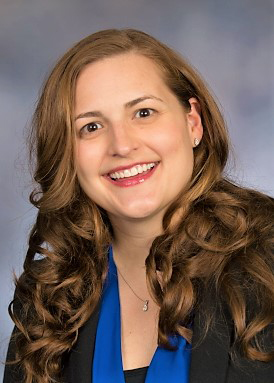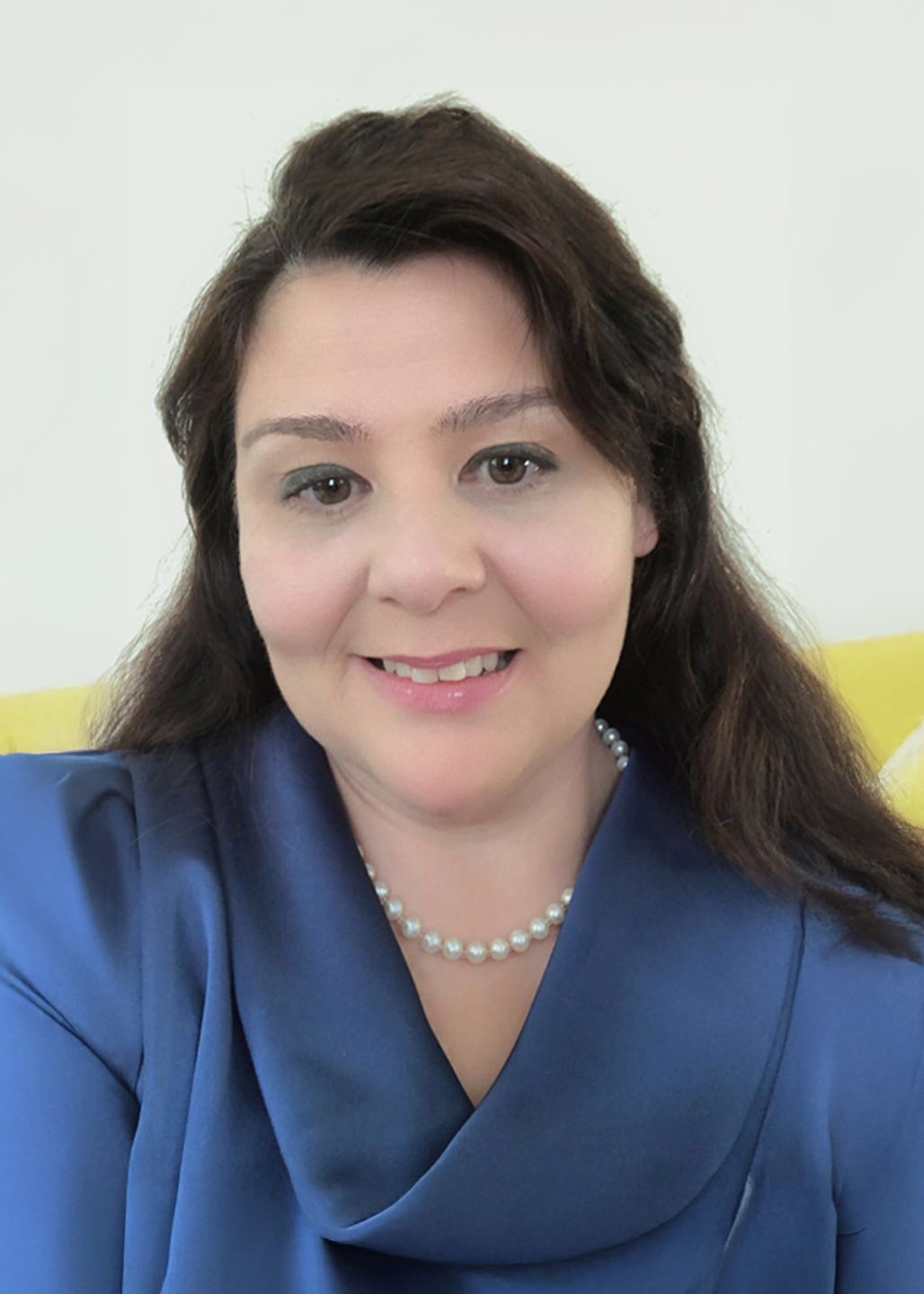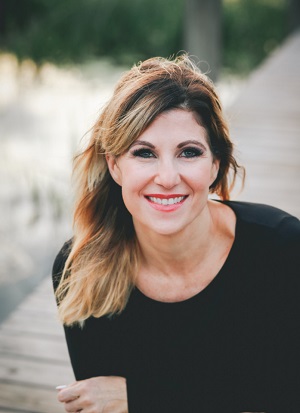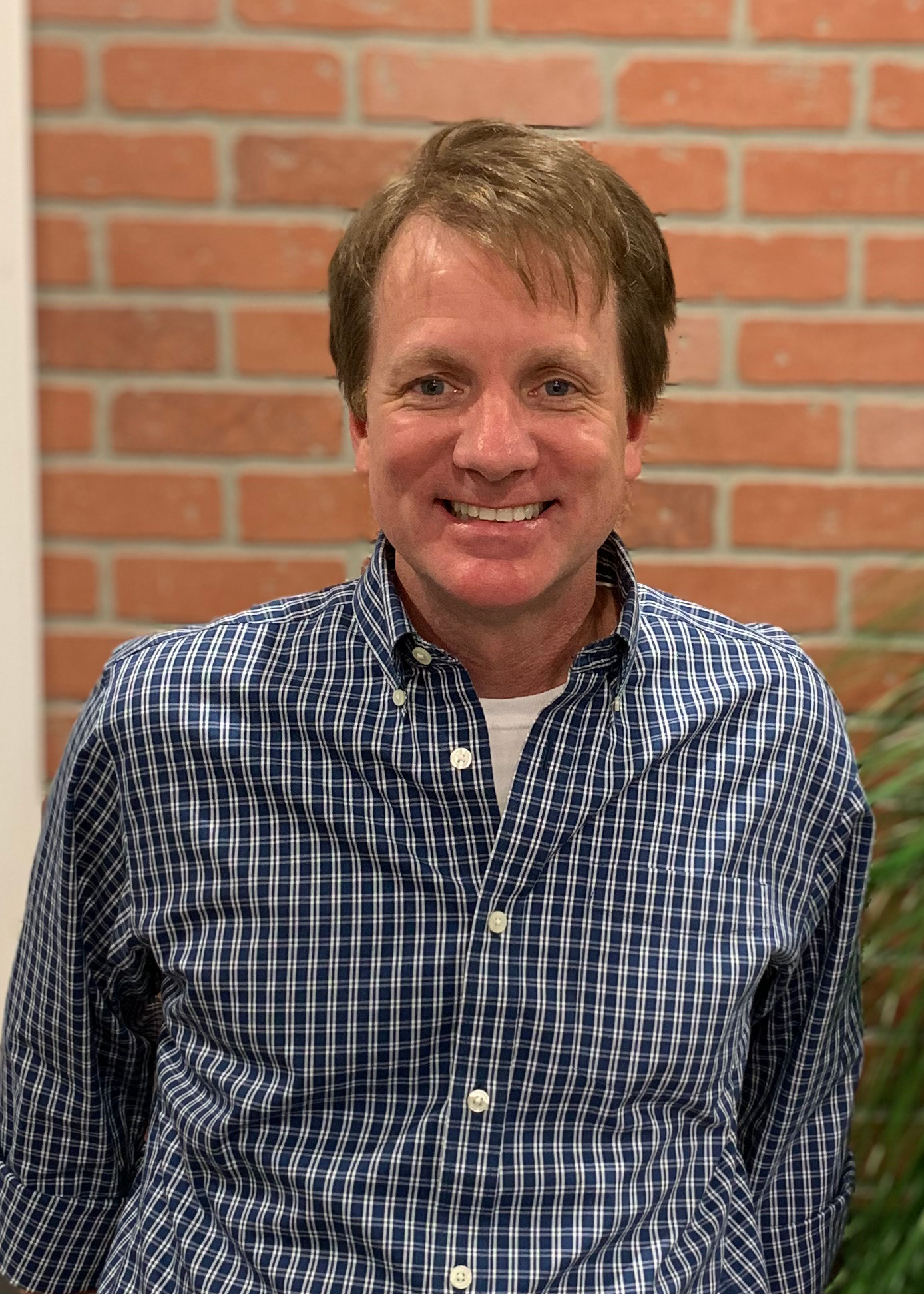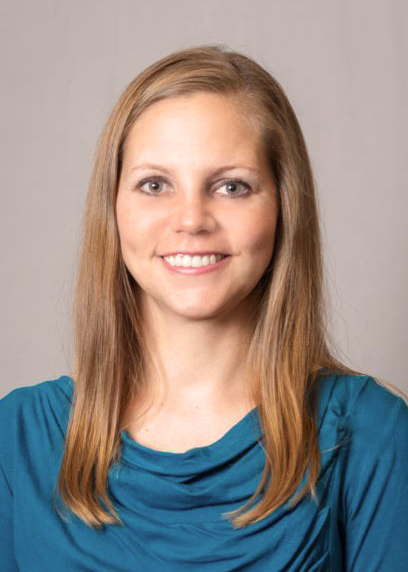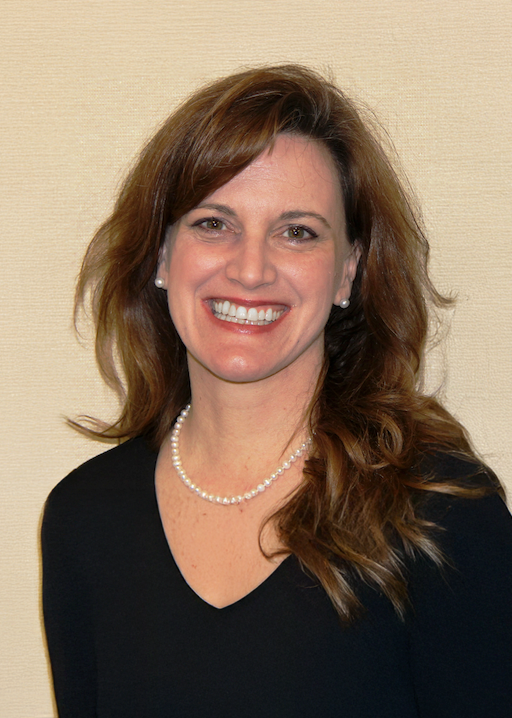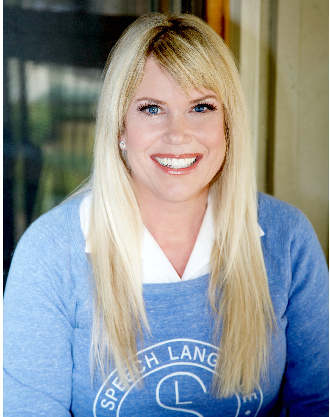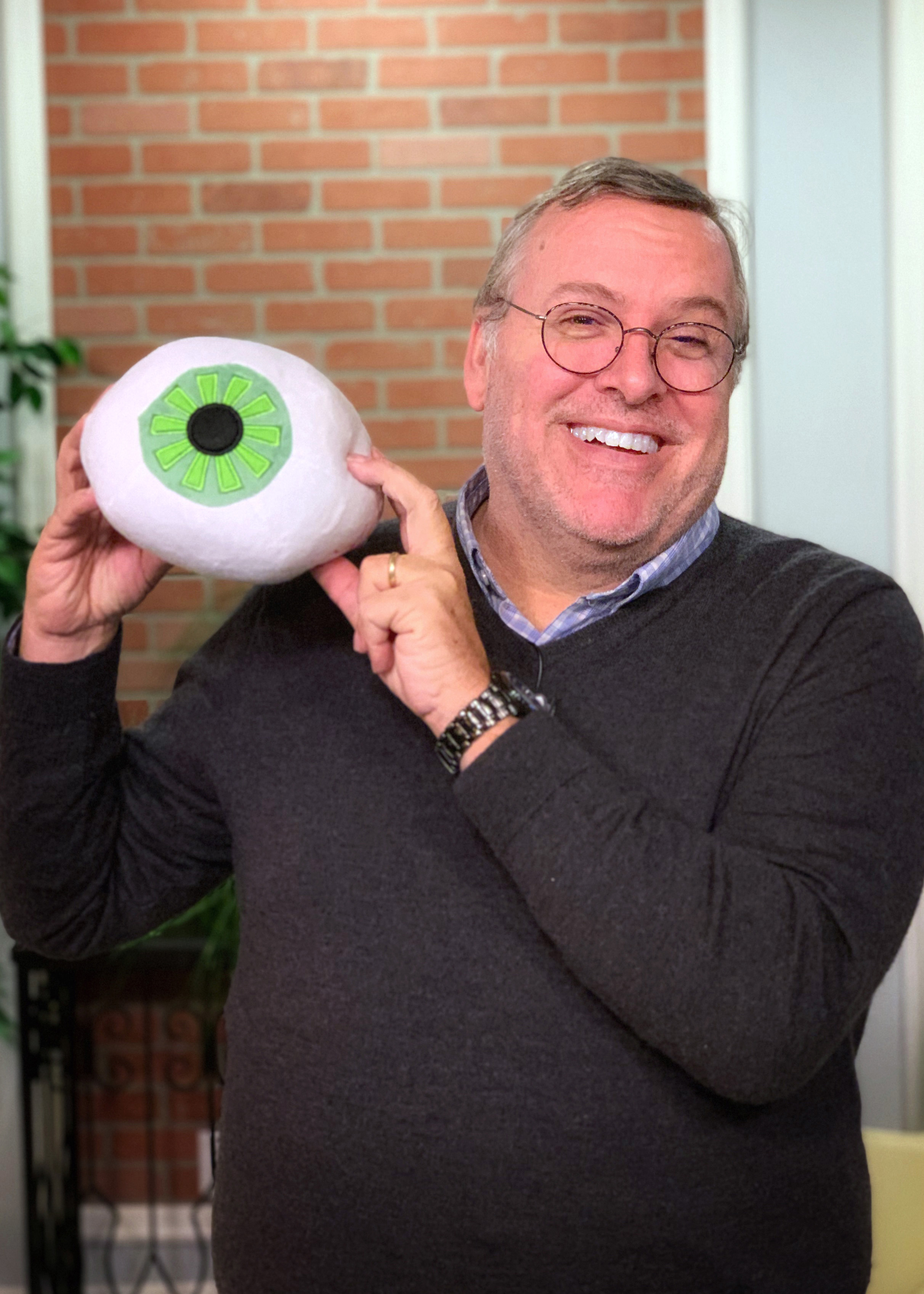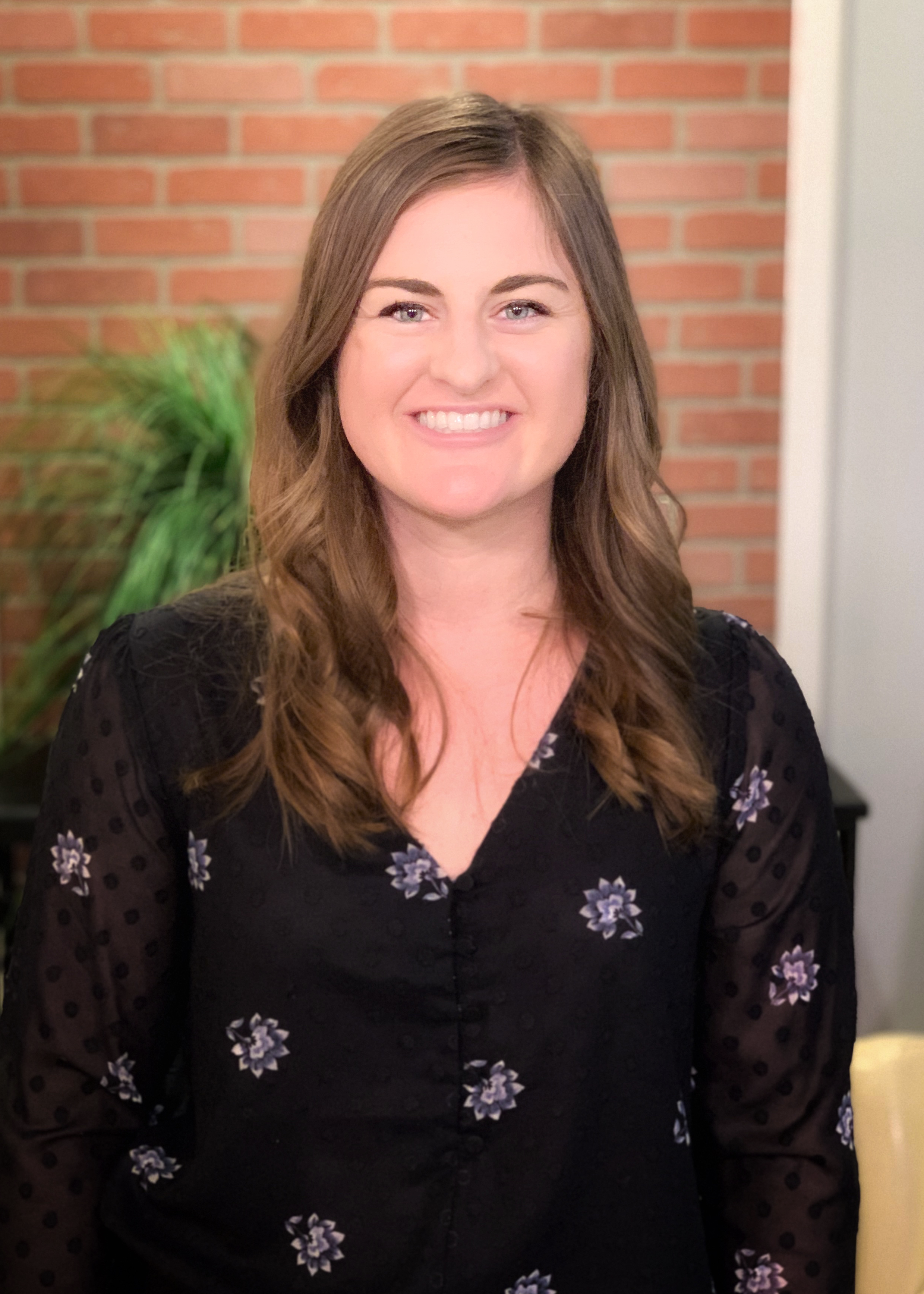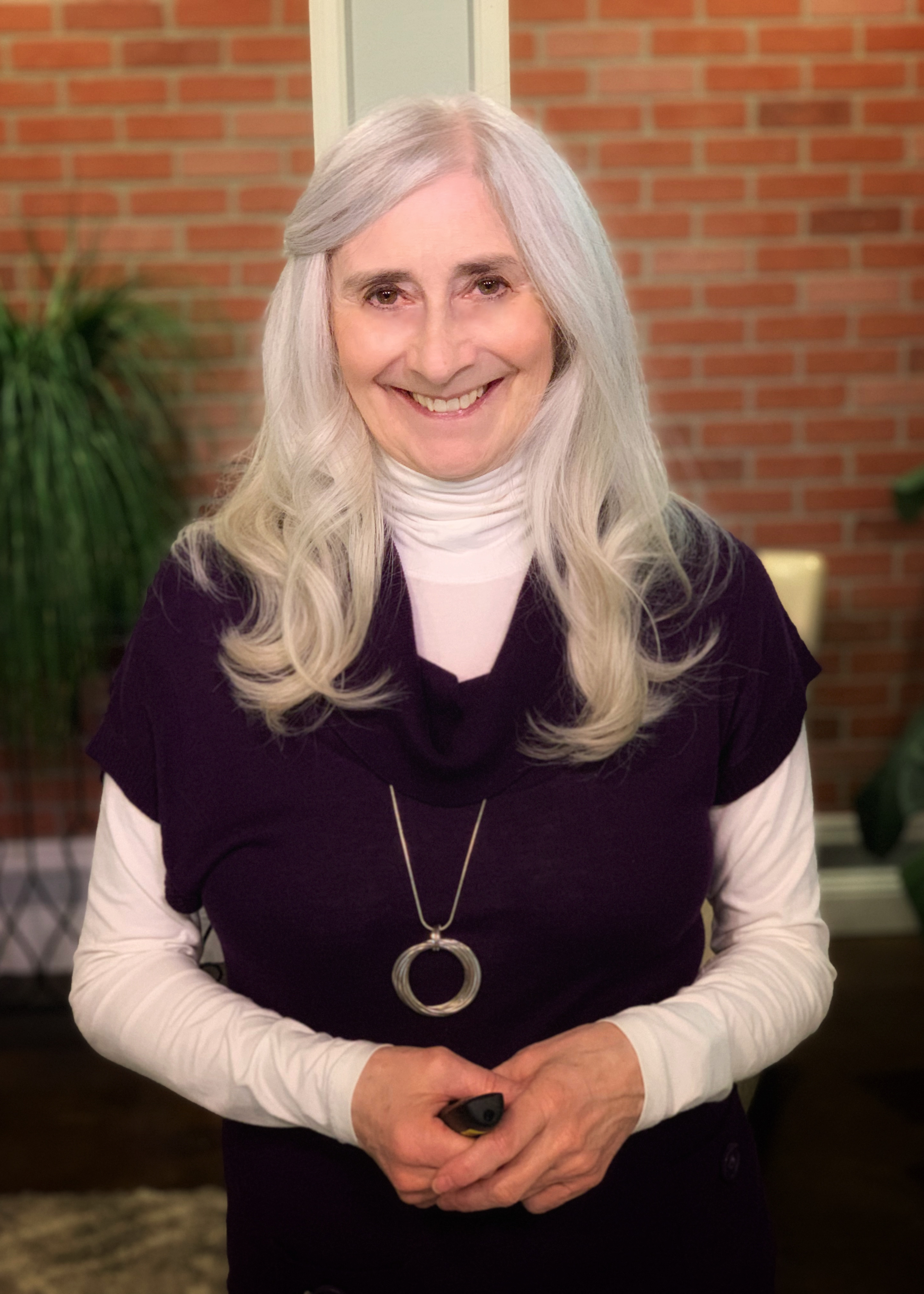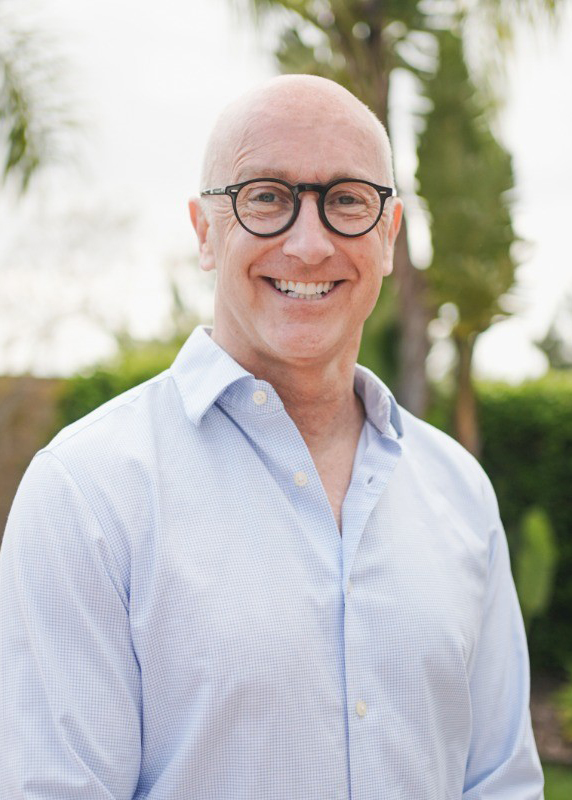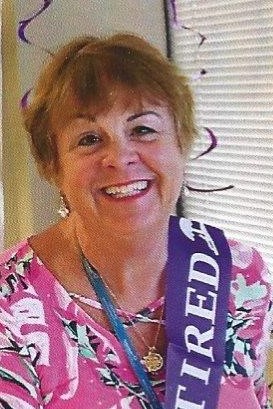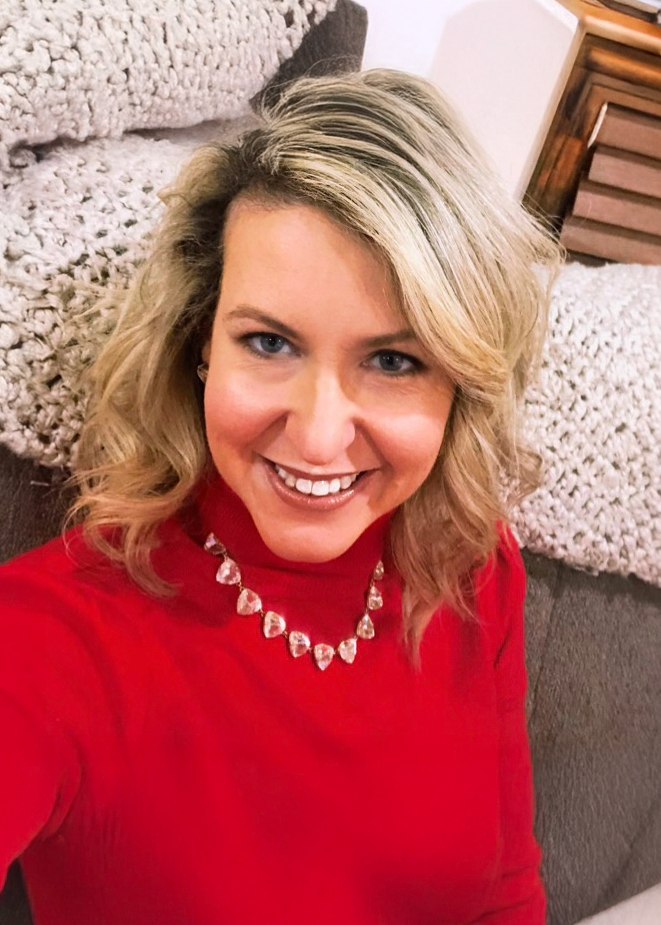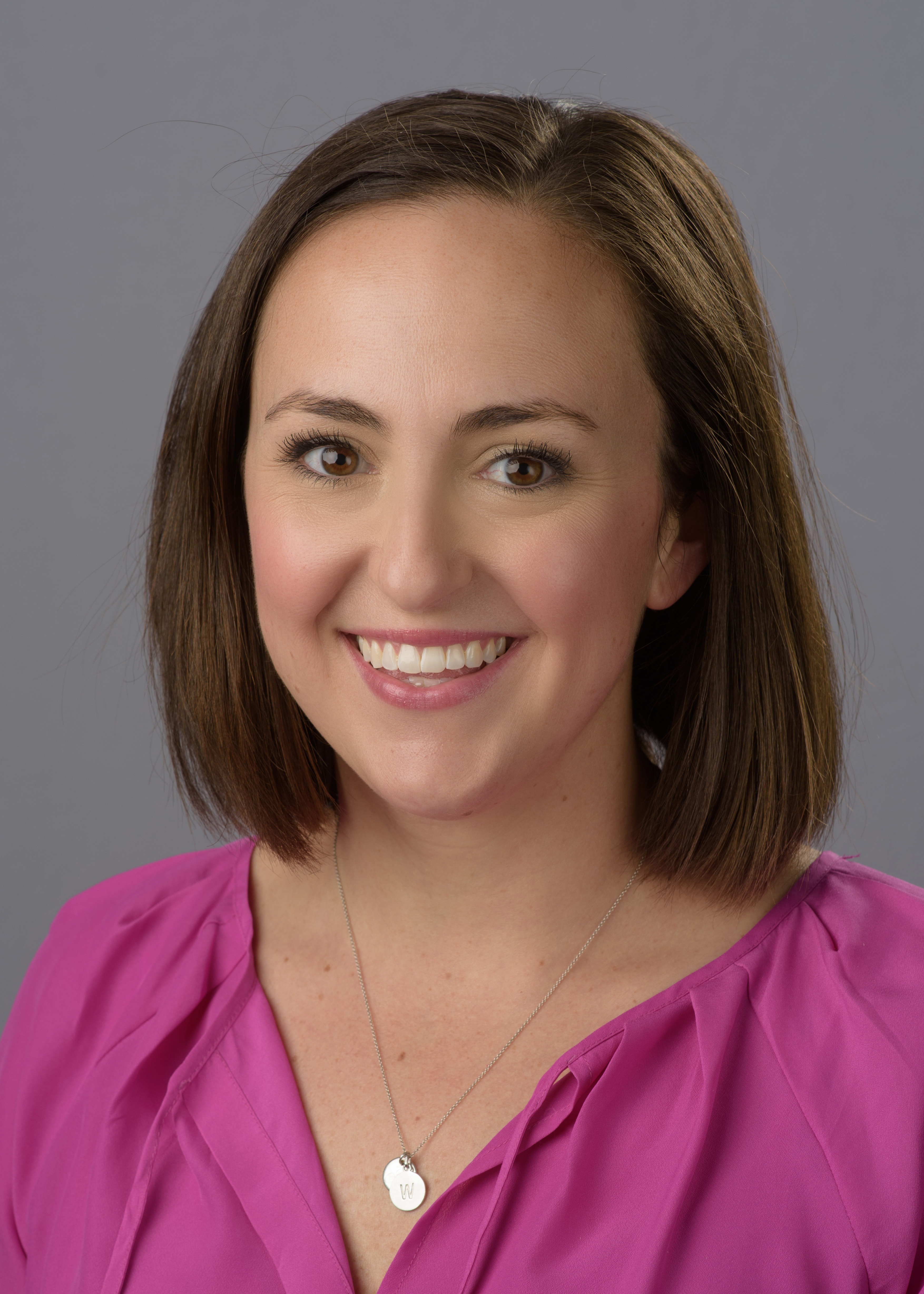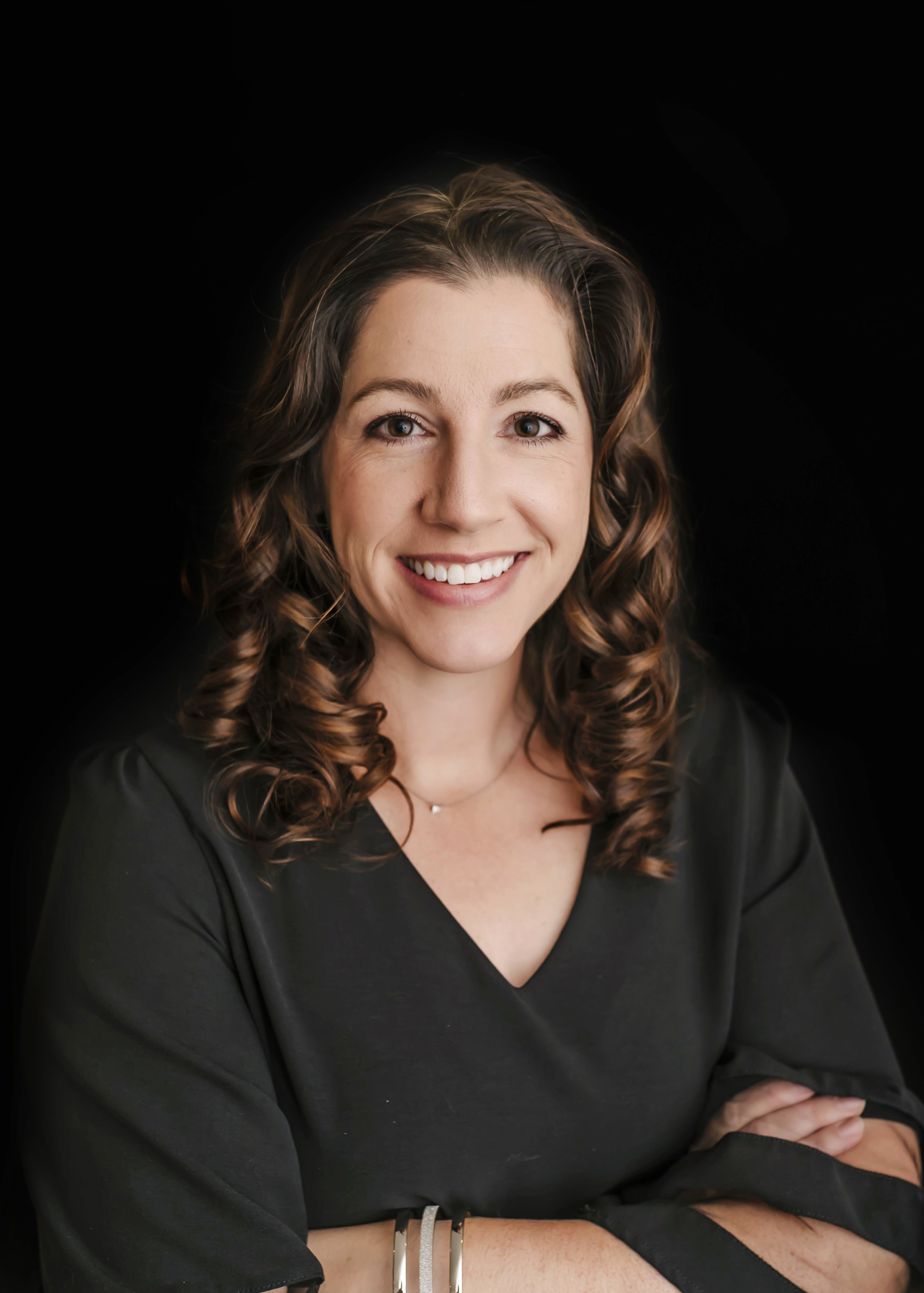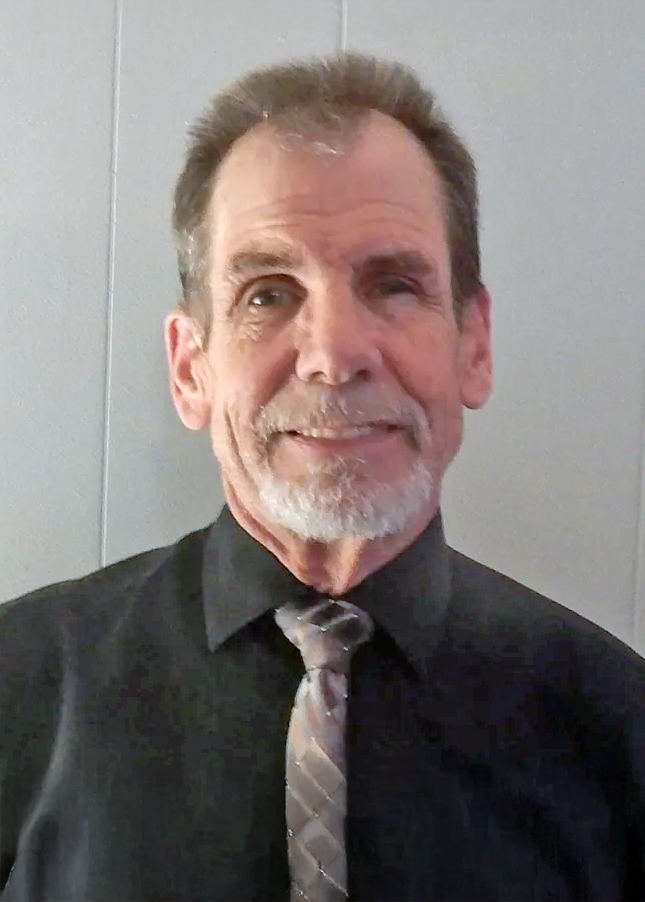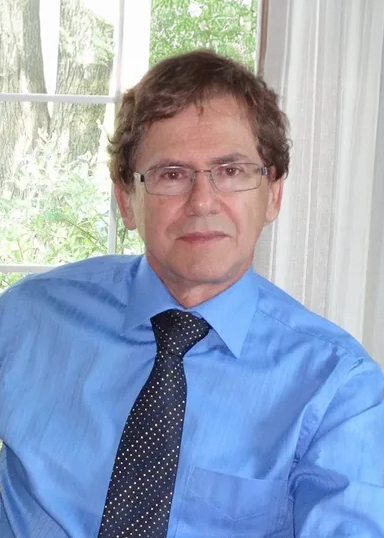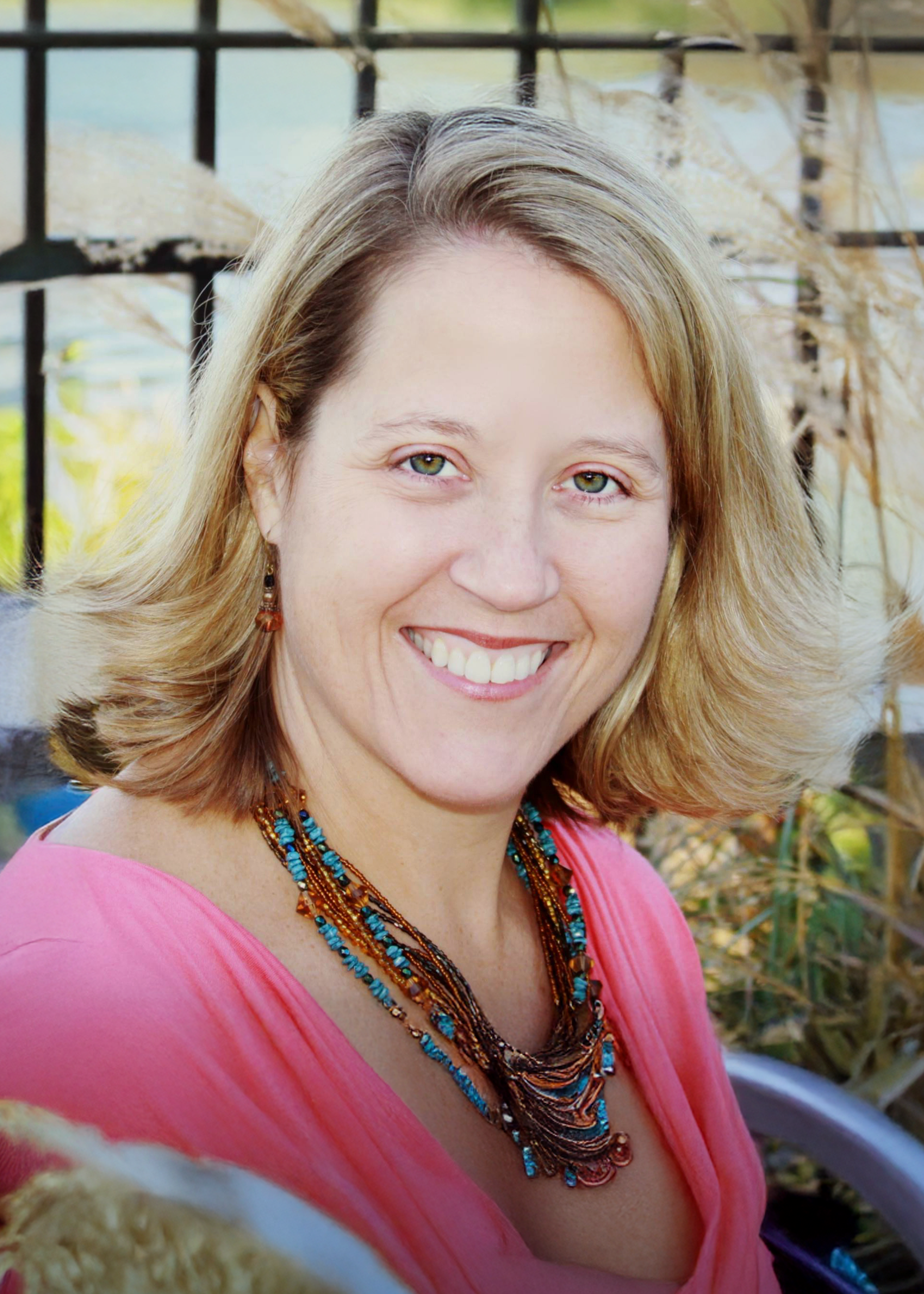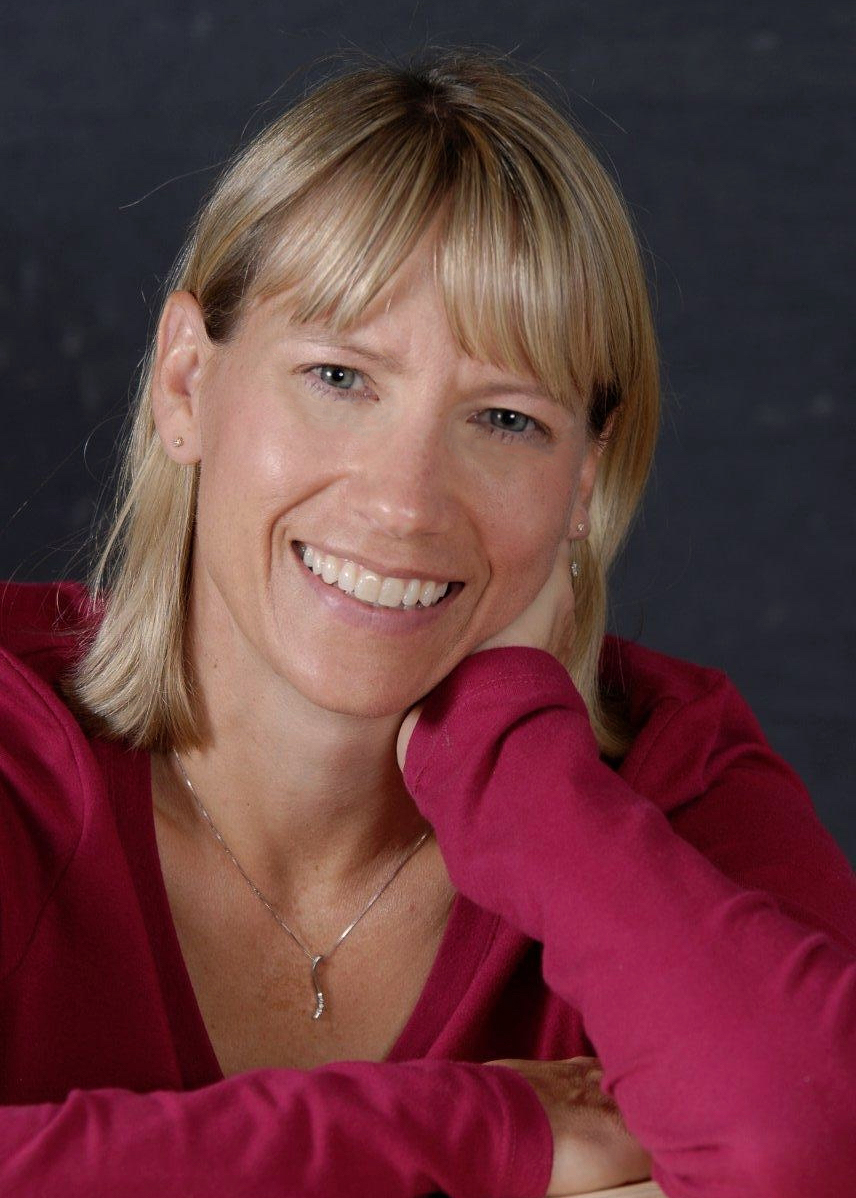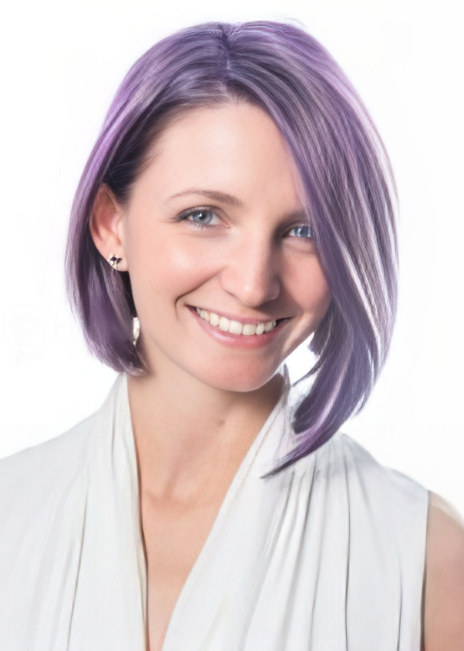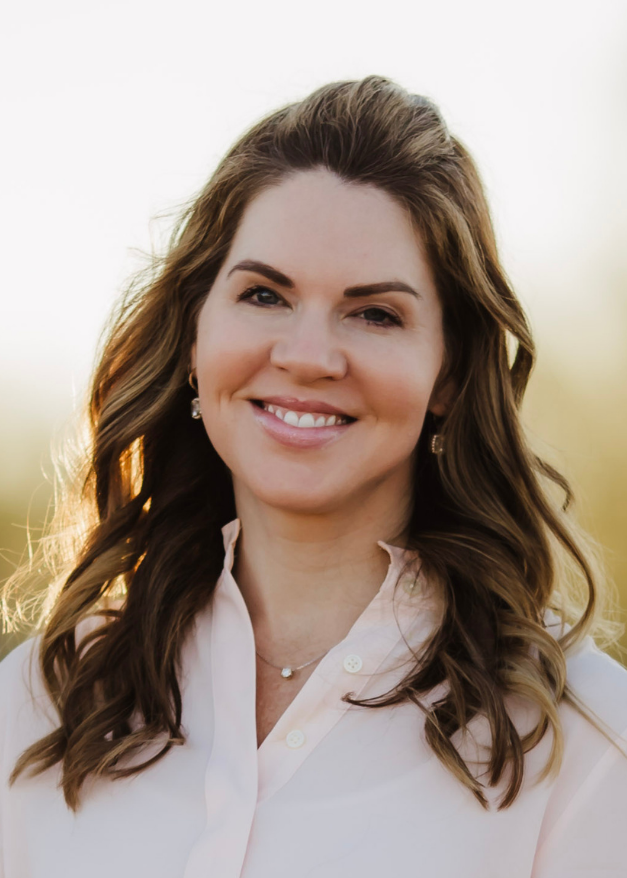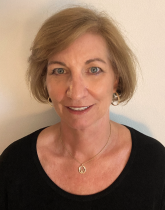VitalStim® Therapy and Beyond: DINES Specialty Certificate Program
Learning the Options, Mastering the Modality - An ICE Accredited Certificate Program -
16 Hours
QUICK VIEW
REQUEST PRIVATE CLASS
|

|
4.90





4.90 of 5 / 12687 Evaluations
|
REGISTER
|
An ICE Accredited Assessment Based Certificate Program
The VitalStim Certificate Program was introduced to the professional dysphagia community in 2003 as the competency course for the only FDA-cleared NMES device for dysphagia treatment. The program, then known as the VitalStim Certification Program, revolutionized dysphagia therapy!
The popular course has gone through multiple revisions since its inception, incorporating the latest findings from the research and clinical communities. This new course update is the most significant to date. It is the result of several converging trends in the field of NMES for dysphagia treatment. The new content reflects significant growth of scientific research, an increase in available treatment protocols and an expansion of available equipment options.
VitalStim® Therapy and Beyond includes the online course, MBS: The Clear Picture (12hrs) and the two day hands-on "VitalStim® Therapy and Beyond: DINES Specialty Certificate Program" (16hrs) for a total of 28 hours of continuing education credit.
Course Pricing
$775 (Individual)
$350 (Renewal at Live Course - earn 16 hrs. of continuing education credit)
Disciplines
- Occupational Therapist
- Speech Language Pathologist
VitalStim® Therapy and Beyond: DINES Specialty Certificate Program - Pediatric Focus
Learning the Options, Mastering the Modality - An ICE Accredited Certificate Program -
16 Hours
QUICK VIEW
REQUEST PRIVATE CLASS
|

|
4.95





4.95 of 5 / 1311 Evaluations
|
REGISTER
|
Penny Head
PT, PhD, SCS, ATC
Karin Mitchell
M.A. CCC-SLP
Receive your Specialty Certificate in VitalStim Therapy!
The VitalStim® Therapy Specialty Program includes the online course, MBS: The Clear Picture-Pediatric (12 hrs.) and the two day hands-on "VitalStim® Therapy Course" (16 hrs.) for a total of 28 hrs.
Course Pricing
$775
$350 (Renewal at Live Course - earn 16 hrs. of continuing education credit)
The VitalStim Therapy Course Manual will be issued at the live course.
Disciplines
- Occupational Therapist
- Speech Language Pathologist
Adaptive Yoga for Children with Neurological Differences: Go With The Flow
Come experience the mind/body connections of Yoga and NDT. -
6.5 Hours
QUICK VIEW
REQUEST PRIVATE CLASS
|

|
4.91





4.91 of 5 / 62 Evaluations
|
REGISTER
|
Nancy Marin
OTR/L, C-NDT, IYT
This one day course will focus on utilizing Yoga and NDT techniques and philosophy for those children with neurological and/or developmental challenges. There are many benefits to everyone to incorporating Yoga into their daily routine. Individuals of all ages and abilities can benefit from a yoga practice. It engages every aspect of body and mind connection to include physical gains, organization of the sensory systems, and the connections within the brain.
We will discuss and identify how the two theories can overlap, through participation in performing the poses, making adaptations for all levels/abilities, labs and video presentations. This course is appropriate for OT's, PT's, ST's, Educators and Developmental Specialists working in a variety of settings.
Yoga benefits for children, especially for those with special challenges:
- Develop physical strength & flexibility
- Increase active/passive range of motion
- Enhance balance and focus
- Increase bilateral integration and crossing midline
- Improve concentration
- Reduce hyperactivity
- Cultivate confidence & self-esteem
- Enhance self-control & relaxation
- Increase cognitive &motor skills
- Relieve/decrease stress
Disciplines
- Physical Therapist
- Certified Occupational Therapy Asst
- Occupational Therapist
- Physical Therapy Asst
- Speech Language Pathologist
- Speech Language Pathology Asst
Alternative Career Pathways for Speech-Language Pathology
6 Hours
QUICK VIEW
REQUEST PRIVATE CLASS
|
|
3.83




3.83 of 5 / 108 Evaluations
|
REGISTER
|
Dr. Katandria Demps
MS, MA, CCC-SLP, CAS, CPH, CPC
There are two ways to participate in this live stream event (BOTH count as LIVE Continuing Education!:):
- in the LIVE STUDIO audience in Gulf Breeze, Florida - Studio audience seats are limited - so register today!
- via LIVE STREAM around the world - Live stream participants will login to access the event from their computer and interact with the instructor.
Course time(s):
8:00 AM Central (9:00 AM Eastern; 7:00 AM Mountain; 6:00 AM Pacific)
Working as a speech language pathologist can be challenging. With mounting paperwork, high caseloads, administrative red tape SLPs may find themselves asking, 'what else can I do with my degree?'.
This introductory course will compliment strengths typical of SLP and help SLPs explore this question further by identifying transferable skills, their strengths and alternative career pathways. This course will also provide guidance on how to complete the job search, resume and interview process to develop services and products in order to generate multi-stream income.
Disciplines
- Speech Language Pathologist
- Speech Language Pathology Asst
Aphasia Therapy Through the Service Settings:
From Door to Discharge -
7 Hours
QUICK VIEW
REQUEST PRIVATE CLASS
|
|
4.47





4.47 of 5 / 62 Evaluations
|
REGISTER
|
Effective communication is nowhere more essential than in the healthcare setting where critical decision making about one’s own care and future are taking place. This course will demonstrate how to set up aphasia therapy using the throughput core measure of JCAHO in order to provide consistent intervention through the continuum of care.
Disciplines
- Speech Language Pathologist
- Speech Language Pathology Asst
Apps: Innovating Adult Treatment
Apps: Innovating Adult Treatment -
7 Hours
QUICK VIEW
REQUEST PRIVATE CLASS
|

|
4.87





4.87 of 5 / 17 Evaluations
|
REGISTER
|
Amanda Santarlas
M.B.A., M.S., CCC/SLP, BCS-S
The world is more distant yet digitally connected than ever before. Technology has become our key to household management, social contact, entertainment, and adapting our occupations. The Pew Research Center indicates that U.S. Smart Phone users have increased from 35% in 2011 to 81% in 2019. Fifty percent of Americans possess a tablet and 75% own a computer or laptop. Immediate access to technology allows for a more efficient process but is often overwhelming. Knowledge, time, and experience helps to ease comfort with device, program, and application use. With more access, usability, and familiarity, use of technology in therapy correlates with functional utilization. As the Speech-Language Pathologists' (SLP) goal is to improve client outcomes and quality of life, apps and programs can encourage increased frequency of practice and innovate the care we provide.
This intermediate level presentation has organized the research, benefits, and limitations of technology utilization in various areas of our practice. Specific applications and programs are reviewed to increase the familiarity and knowledge of the evidence-based software options available to enhance SLP service delivery. The seminar serves as an instant resource to improve SLP clinician comfort and expertise in software management while providing useful tools and guidance to integrate technology as a treatment modality.
Disciplines
- Speech Language Pathologist
Apraxia, Dysarthria, and Global Aphasia
7 Hours
QUICK VIEW
REQUEST PRIVATE CLASS
|
|
4.60





4.60 of 5 / 33 Evaluations
|
REGISTER
|
There are two ways to participate in this live stream event (BOTH count as LIVE CE):
- in the LIVE STUDIO audience in Gulf Breeze, Florida - Studio audience seats are limited - so register today!
- via LIVE STREAM around the world - Live stream participants will login to access the event from their computer and interact with the instructor.
Course begins: 8:00 AM Central (9:00 AM Eastern; 7:00 AM Mountain; 6:00 AM Pacific)
Please contact our office if you have any questions. 850-916-8886.
Treating acquired speech and language disorders starts with a strong differential diagnosis evaluation. This course will guide the participant in recognizing the differences and then building a combination of treatment approaches to target the impairments. Participants will become familiar with tests including the Newcastle Dysarthria Assessment Tool, The Apraxia Speech Rating Scale, The Apraxia Battery for Adults Assessment, and Cognitive Test Battery for Global Aphasia. Evidence based treatment approaches will be discussed as well as some less researched clinical pathways. These techniques include Rhythm/rate control methods, and articulatory kinematic approaches The instructor will present case studies and guides on documentation. Therapists will leave with a well-rounded approach to acquired speech and language disorders to bring to the patients on Monday morning.
Disciplines
- Speech Language Pathologist
- Speech Language Pathology Asst
Avoidant Restrictive Food Intake Disorder: Food Anxiety and How to Treat It!
3.5 Hours
QUICK VIEW
REQUEST PRIVATE CLASS
|
|
0.00
|
REGISTER
|
Kelly Komisaruk
M.Ed., CCC-SLP
Do you ever find that you are faced with treating individuals with Avoidant Restrictive Food Intake Disorder, or ARFID, and you are unsure how to best treat them? Are you expected to treat older children or people with food phobias/anxiety and do not have the skills with which to best help them? Are you searching for better ways to achieve greater outcomes for your patients with anxiety around eating? We were not taught this in school, and many of us are in need of ways to better help our patients with this complex and challenging diagnosis. For years, Kelly Komisaruk has specialized in Avoidant Restrictive Food Intake Disorder and helping people specifically with this diagnosis. She will not only give you a solid understanding of what ARFID is (so you can explain it to caregivers!) but will also fill your therapy tool box with resources you need to be able to walk your patients through a journey to be able to eat successfully again. You will be able to troubleshoot, plan therapy sessions, and gain a better understanding of what your patients are going through while eating. You will leave this course feeling confident in your ability to take on your biggest feeding challenges like never before. You will also learn Kelly's successful "Low Pressure Still Progressing" approach to ARFID treatment to guide you along your way!
Disciplines
- Certified Occupational Therapy Asst
- Occupational Therapist
- Speech Language Pathologist
- Speech Language Pathology Asst
Bell's and Facial Palsy: The Evidence-Based Toolbox
Successful Outcomes with Exercise, sEMG, Myofascial Release and Kinesiology Taping -
8 Hours
QUICK VIEW
REQUEST PRIVATE CLASS
|

|
4.78





4.78 of 5 / 110 Evaluations
|
REGISTER
|
There are two ways to participate in this live stream event (BOTH count as LIVE CE):
- in the LIVE STUDIO audience in Gulf Breeze, Florida - Studio audience seats are limited - so register today!
- via LIVE STREAM around the world - Live stream participants will login to access the event from their computer and interact with the instructor.
Course begins: 8:00 AM Central (9:00 AM Eastern; 7:00 AM Mountain; 6:00 AM Pacific)
Please contact our office if you have any questions. 850-916-8886.
Facial palsy brings about psychosocial and musculoskeletal challenges which have a significant impact on communication and bolus management. A diagnoses familiar to the rehabilitation clinician, there remains limited access to education and therapeutic applications for the re-education of the neuromuscular system. In this course, the instructor will guide participants through a variety of treatment options including myofascial release, kinesiology taping and biofeedback. Etiologies of facial palsy such as, Bell's, Ramsey Hunt, Myasthenia Gravis, stroke and more will be discussed. This course will discuss strategies that offer muscular inhibition in synkinesis and craniomandibular spasticity, muscular recruitment for orofacial control. Course instruction will demonstrate approaches to minimize headaches, jaw pain and cervical pain as a result of postural compensations of the jaw and poor breath patterns. Laboratories will broaden your therapeutic toolbox to improve patient outcomes with evidence-based approach to exercise, sEMG use, Myofascial Release and kinesiology taping. John Kelly is a one-of-a-kind instructor who is helping to redefine the medical practice of Speech Language Pathology and interdisciplinary rehabilitation providers.
Disciplines
- Physical Therapist
- Certified Occupational Therapy Asst
- Occupational Therapist
- Physical Therapy Asst
- Speech Language Pathologist
Breathing Attacks! Differential Diagnosis and Speech Treatment of Vocal Cord Dysfunction
2 Hours
QUICK VIEW
REQUEST PRIVATE CLASS
|
|
4.90





4.90 of 5 / 42 Evaluations
|
REGISTER
|
Allison Brown
MS, CCC-SLP, BCS-S
There are two ways to participate in this live event, as either part of the live studio audience in Gulf Breeze, Florida or via live stream around the world. Live stream participants will receive instructions in the confirmation e-mail on how to access the event from their computer and interact with the instructor. Studio audience seats are limited - so register now! Please contact our office if you have any questions. 850-916-8886.
Course time: July 16 Live Stream will begin at 1pm Eastern, 12pm Central, 11am Mountain, 10am Pacific
OR
Course time: July 17 Live Stream will begin at 10am Eastern, 9am Central, 8am Mountain, 7am Pacific
Vocal Cord Dysfunction (VCD) is an inappropriate closure of the vocal cords during respiration, creating an airway obstruction that most significantly affects athletes during activity. VCD is often misdiagnosed as asthma, often leading to ineffective treatment. The speech pathologist plays a vital role working within a multidisciplinary team to effectively teach and communicate a treatment plan ensuring optimal care and outcomes for these patients. This introductory level course will discuss techniques for identifying and diagnosing VCD, provide a step-by-step treatment approach, and address making referrals as necessary.
Disciplines
- Speech Language Pathologist
- Speech Language Pathology Asst
Building A School-Based Team Feeding Program
7.5 Hours
QUICK VIEW
REQUEST PRIVATE CLASS
|
|
0.00
|
REGISTER
|
Jennifer Meyer
M.A. CCC-SLP
The number of students with severe disabilities being served in the school setting keeps rising across all grades. Many have feeding and swallowing difficulties putting them at risk for life-threatening complications, yet they still need to receive adequate nutrition/hydration during the day to benefit from their educational program. How do we address the needs of these students safely in the Educational rather than Medical setting?
It takes the entire school staff from those in Administration to those working directly with the child to those preparing the food to develop a cohesive successful program. All must have an understanding of what Feeding Disorders are and what the implications can be. We must have a common vocabulary when discussing the child's needs, carry-over of appropriate accommodations and reliable preparation and classification of different food consistencies served.
In this Introductory course aimed at staff-wide training, you will learn who is on the Feeding Team, each member's roles and responsibilities, and what part YOU play in keeping these students safe and healthy. We will practice identifying Red Flags for Feeding Problems, assessing a student's strengths and challenges in Feeding and we will even prepare and test the eight different levels of food consistencies established by the International Dysphagia Diet Standardisation Initiative (IDDSI ®). You will be trained in recognizing and evaluating different food consistencies right there in the cafeteria or classroom.
Finally, we will put it all together by designing an Individual Feeding Plan that addresses the identified needs of a given student.
Be prepared for a day of enjoyable, laughter-filled, interactive learning and come away excited to help your students flourish!
(Parts of this course may get messy, so please dress accordingly.)
Disciplines
- Physical Therapist
- Certified Occupational Therapy Asst
- Occupational Therapist
- Physical Therapy Asst
- Speech Language Pathologist
- Speech Language Pathology Asst
Building an Effective Approach in the Treatment of Individuals on the Autism Spectrum (2 Day)
12.5 Hours
QUICK VIEW
REQUEST PRIVATE CLASS
|
|
4.45





4.45 of 5 / 48 Evaluations
|
REGISTER
|
Jodie Dacy
M.S. CCC-SLP, NDC
Numerous treatment strategies for individuals with Autism have evolved over the years leaving clinicians and teachers feeling overwhelmed. This intermediate level course for SLPs, OTs, PTs and teachers presents a framework for designing an eclectic program to obtain the best outcomes for your patients with Autism. In this two-day course, emphasis on structure takes a front row seat in the design of your programs and classroom. As clinicians or teachers, our working understanding of Autism becomes the foundation of our decision-making process. Some of the topics discussed to consider including in your program is: using a reinforcer assessment, effective utilization of PECS, Incidental Teaching, Visual Cueing Systems, language development comparison of neuro typical versus neuro a-typical, Social Skills development and treatment strategies, improved understanding of the 8 sensory systems and their impact on communication, structuring the environment, work systems, behavior management strategies, Theory of Mind (ToM), Autobiographical Memory (AM), the Polyvagal Theory, and effective techniques to improve speech intelligibility. You will leave this course feeling empowered with strategies that have proven the test of time to make you and your patient/student successful.
Disciplines
- Physical Therapist
- Certified Occupational Therapy Asst
- Occupational Therapist
- Physical Therapy Asst
- Speech Language Pathologist
- Speech Language Pathology Asst
- Teacher
Building an Effective Approach in the Treatment of Individuals on the Autism Spectrum (PART 1)
6 Hours
QUICK VIEW
REQUEST PRIVATE CLASS
|
|
0.00
|
REGISTER
|
Jodie Dacy
M.S. CCC-SLP, NDC
Numerous treatment strategies for individuals with Autism have evolved over the years leaving clinicians and teachers feeling overwhelmed. This intermediate level course for SLPs, OTs, PTs and teachers presents a framework for designing an eclectic program to obtain the best outcomes for your patients with Autism. In this two-day course, emphasis on structure takes a front row seat in the design of your programs and classroom. As clinicians or teachers, our working understanding of Autism becomes the foundation of our decision-making process. Some of the topics discussed to consider including in your program are: Incidental Teaching, language development comparison of neuro typical versus neuro a-typical, Social Skills development and treatment strategies, improved understanding of the 8 sensory systems and their impact on communication, Theory of Mind (ToM), Autobiographical Memory (AM), and the Polyvagal Theory, and effective techniques to improve communication. You will leave this course feeling empowered with strategies that have proven the test of time to make you and your patient/student successful.
Disciplines
- Physical Therapist
- Certified Occupational Therapy Asst
- Occupational Therapist
- Physical Therapy Asst
- Speech Language Pathologist
- Speech Language Pathology Asst
Building an Effective Approach in the Treatment of Individuals on the Autism Spectrum (PART 2)
6 Hours
QUICK VIEW
REQUEST PRIVATE CLASS
|
|
0.00
|
REGISTER
|
Jodie Dacy
M.S. CCC-SLP, NDC
Numerous treatment strategies for individuals with Autism have evolved over the years leaving clinicians and teachers feeling overwhelmed. This intermediate level course for SLPs, OTs, PTs and teachers presents a framework for designing an eclectic program to obtain the best outcomes for your patients with Autism. In this two-day course, emphasis on structure takes a front row seat in the design of your programs and classroom. As clinicians or teachers, our working understanding of Autism becomes the foundation of our decision-making process. Some of the topics discussed to consider including in your program are: using a reinforcer assessment, effective utilization of PECS, Visual Cueing Systems, structuring the environment, work systems, behavior management strategies and strategies for improving motor skills. You will leave this course feeling empowered with strategies that have proven the test of time to make you and your patient/student successful.
This series is presented in two parts. Part 1 and Part 2 may be taken independently of each other.
Disciplines
- Physical Therapist
- Certified Occupational Therapy Asst
- Occupational Therapist
- Physical Therapy Asst
- Speech Language Pathologist
- Speech Language Pathology Asst
Building an Effective Approach in the Treatment of Individuals on the Autism Spectrum - 1 Day
6 Hours
QUICK VIEW
REQUEST PRIVATE CLASS
|
|
4.71





4.71 of 5 / 90 Evaluations
|
REGISTER
|
Jodie Dacy
M.S. CCC-SLP, NDC
Numerous treatment strategies for working with individuals with Autism have evolved over the years leaving clinicians and teachers feeling overwhelmed. This intermediate level course for SLPs, OTs, and teachers presents a framework for designing an eclectic program to work with individuals with Autism. Emphasis on structure takes a front row seat in the design of your programs and classroom. As clinicians or teachers, our working understanding of Autism becomes the foundation of our decision making process in both designing curriculum and structure. The more we understand the individuals we serve with Autism, the better the outcomes for our patients. This course is offered in either a 1 or 2-day format. Topics covered include: PECS, Incidental Teaching, Visual Cueing Systems, Language, Social Skills, Circle and Snack Time Instructions, Structuring the Environment, Work Systems, Behavior Management, Discrete Trials and more. This course shows professionals ways to include numerous therapeutic techniques into the daily routine and the effectiveness of using an eclectic program in the treatment of individuals with Autism.
Disciplines
- Physical Therapist
- Certified Occupational Therapy Asst
- Occupational Therapist
- Physical Therapy Asst
- Speech Language Pathologist
- Speech Language Pathology Asst
Building Social and Language Skills One Block at a Time
7 Hours
QUICK VIEW
REQUEST PRIVATE CLASS
|

|
0.00
|
REGISTER
|
Ellen Bustamante
M.A., CCC-SLP
Come play with us and learn a novel, interdisciplinary, organic, treatment idea using construction blocks to teach social skills, enrich language and build peer collaboration. This course will benefit therapists whose patient challenges include Autism, Pragmatic Language Impairment, Expressive Language Disorders, Receptive Language Disorders, AAC Users, Narrative Language Difficulty and more!
Disciplines
- Certified Occupational Therapy Asst
- Occupational Therapist
- Speech Language Pathologist
- Speech Language Pathology Asst
- Teacher
Building the Vision Aware Practice
2 Hours
QUICK VIEW
REQUEST PRIVATE CLASS
|
|
0.00
|
REGISTER
|
If we keep doing the same thing, we keep getting the same results. Adding vision rehabilitation to your therapy practice could be the key to better outcomes and new referrals. This course offers real-world-advice from a therapist that has dedicated years developing a "vision aware" occupational therapy practice. From equipment to marketing and documentation, this course covers it all, in a useful way to help you develop a plan to add patients with visual complaints to your practice.
Disciplines
- Physical Therapist
- Certified Occupational Therapy Asst
- Occupational Therapist
- Physical Therapy Asst
- Speech Language Pathologist
- Speech Language Pathology Asst
Cleft Lip and Palate: Eval and Treatment of Speech and Resonance Disorders for the SLP
3 Hours
QUICK VIEW
REQUEST PRIVATE CLASS
|
|
0.00
|
REGISTER
|
Caitlin Lentz
M.S. CCC-SLP
Children with cleft lip and palate present with a variety of speech, language, and resonance disorders. As a speech language pathologist in the school setting, it is highly likely you will encounter a child with a cleft lip and/or palate and be involved in their care. During this introductory course, we will review anatomy and physiology of speech mechanism and the impacts a cleft lip and palate has on speech and resonance. We will discuss evaluation and treatment for articulation disorders related to cleft lip and palate and highlight specific therapy techniques which can be used for children with compensatory speech errors. Videos will be incorporated for illustration and case study examples.
Disciplines
- Speech Language Pathologist
- Speech Language Pathology Asst
Cleft Lip and Palate: The SLP Role in Medical Multidisciplinary Care from Birth to Adolescence
3 Hours
QUICK VIEW
REQUEST PRIVATE CLASS
|
|
0.00
|
REGISTER
|
Caitlin Lentz
M.S. CCC-SLP
On average, one of out every 700 infants is born with a cleft lip and/or palate. Speech therapists are involved in a patient's care from the beginning since babies with cleft lip and/or palate have feeding difficulties and often require the use of a specialized feeding system. During this intermediate course, we will review the role of the SLP within a multidisciplinary Cleft/Craniofacial team and how the role of the SLP changes throughout the child's medical treatment. The course will address the management of feeding difficulties and appropriate selection of specialty feeding systems. We will review strategies for early intervention for speech/language development and characteristics of perceptual speech assessments in school-aged children with cleft lip and/or palate. There will also be a section specific to clinical decision making regarding velopharyngeal dysfunction and diagnostic speech imaging (videofluoroscopy and nasoendoscopy) procedures for resonance disorders. Video examples and case study presentations will be included.
Disciplines
- Speech Language Pathologist
- Speech Language Pathology Asst
COVID vs. Long COVID: Impact on the Body and Rehabilitation
6.5 Hours
QUICK VIEW
REQUEST PRIVATE CLASS
|
|
0.00
|
REGISTER
|
Denise Dougherty
MA, CCC-SLP
There are two ways to participate in this live stream event (BOTH count as LIVE Continuing Education!:):
- in the LIVE STUDIO audience in Gulf Breeze, Florida - Studio audience seats are limited - so register today!
- via LIVE STREAM around the world - Live stream participants will login to access the event from their computer and interact with the instructor.
Course time(s):
8:00 AM Central (9:00 AM Eastern; 7:00 AM Mountain; 6:00 AM Pacific)
COVID-19 has impacted our personal and professional lives, and how we as speech-pathologists, physical therapists, and occupational therapists' practice. This course expands on our basic knowledge of virus transmission, known variants, symptomatic vs. asymptomatic as well as current treatments including mechanical ventilation, intubation, and the need for alternative nutrition. Pediatric cases have increased with severe complications such as multisystem inflammatory syndrome (MIS-C). Long COVID or long haulers have their own set of health issues that impact quality of life. This course will present current research discussing the known impact on voice, respiration, ADLs, function, endurance, nutrition, GI system, dysphagia and cognition and the challenges faced in rehabilitation of the long haulers or long covid patients.
Disciplines
- Physical Therapist
- Certified Occupational Therapy Asst
- Occupational Therapist
- Physical Therapy Asst
- Speech Language Pathologist
- Speech Language Pathology Asst
Documenting to Support Medical Necessity: Evaluation through Discharge
3.5 Hours
QUICK VIEW
REQUEST PRIVATE CLASS
|
|
4.76





4.76 of 5 / 25 Evaluations
|
REGISTER
|
There are two ways to participate in this live stream event (BOTH count as LIVE Continuing Education!):
- in the LIVE STUDIO audience in Gulf Breeze, Florida - Studio audience seats are limited - so register today!
- via LIVE STREAM around the world - Live stream participants will login to access the event from their computer and interact with the instructor.
Course time(s):
9:00 AM Central until 12:45 PM (starting 10:00 AM Eastern; 8:00 AM Mountain; 7:00 AM Pacific)
OR
2:00 PM Central until 5:45 PM (starting 3:00 PM Eastern; 1:00 PM Mountain; 12:00 PM (noon) Pacific)
Physical therapy, occupational therapy, and speech-language pathology services continue to be on the audit radar for various Medicare and private insurance carriers medical review entities for documentation, coding and billing issues. This seminar will teach participants the necessary components of documentation for the initial evaluation, reevaluation, progress reports, daily notes, discharge reports and the Medicare Part B certification and recertification process that will help participants document the key points in supporting medical necessity and the skilled nature of outpatient therapy services.
Disciplines
- Physical Therapist
- Certified Occupational Therapy Asst
- Occupational Therapist
- Physical Therapy Asst
- Speech Language Pathologist
- Speech Language Pathology Asst
Drugs and Dysphagia: 2.0
10 Hours
QUICK VIEW
REQUEST PRIVATE CLASS
|
|
0.00
|
REGISTER
|
Lynette Carl
BS, PharmD, BCPS, RPh, C RPh
Explore the Impact of Pharmacology on Dysphagia
This comprehensive seminar offers an in-depth look at the complex relationship between pharmacology and dysphagia. Updated with the latest research and treatment strategies, this course equips participants with a deep understanding of medication-induced swallowing disorders and actionable approaches to improve patient outcomes.
Key Topics Include:
- A review of the central and peripheral nervous systems and their roles in swallowing
- The seven primary ways medications contribute to dysphagia
- In-depth analysis of medications commonly associated with dysphagia, such as antipsychotics, antidepressants, anticonvulsants, and anticholinergics
- Strategies for identifying and managing medication-induced dysphagia through case studies and real-world examples
- Insights into emerging treatments like TRP agonists and pharyngeal electrical stimulation to enhance swallowing safety and efficacy
This seminar emphasizes practical applications, including:
- Guidelines to minimize dysphagia risks when prescribing medications
- Addressing complications in high-risk populations, such as elderly patients and individuals with neurological disorders
Through interactive discussions and case-based learning, participants will leave with actionable insights to optimize care and improve outcomes for patients affected by medication-induced dysphagia.
Disclosure: This course is based on the book Drugs and Dysphagia (2nd Ed). The book is not included with the course and is not required for completion.
Disciplines
- Physical Therapist
- Certified Occupational Therapy Asst
- Occupational Therapist
- Physical Therapy Asst
- Speech Language Pathologist
- Speech Language Pathology Asst
Dynamic Diversification
How to Incorporate Learning Styles into Your Therapy -
5.5 Hours
QUICK VIEW
REQUEST PRIVATE CLASS
|
|
5.00





5.00 of 5 / 29 Evaluations
|
REGISTER
|
Jodie Dacy
M.S. CCC-SLP, NDC
As therapist we are faced with teaching individuals' tasks that are very difficult for them to do. Let's face it, the mindset of most of our patients is that they have failed or simply can't do the tasks we ask of them. Clinicians are faced with many decisions daily. How we teach the skills needed is one of them and unfortunately how well we teach affects our outcome measures. Participants will leave this course with a strong foundation and better understanding of the many different learning styles and how to diversify instruction. In addition to diversification of instruction, mindset will be addressed. The instructor will embed differentiated teaching concepts throughout the course to help you be able to apply strategies with your patients the following day. This course will provide support to teachers, therapists and families who feel overwhelmed. It will address the thought of "I've tried the cookbook approach and it did not work, now what?". This course is designed for anyone who is working with toddlers, children, teens and adults that are faced with having to learn tasks they have never been able to do or they were able but now can't, such as SLP's, OT's, PT's, Social Workers, Counselors and Teachers. Family members are also encouraged to attend. Discussion will include topics such as the eight different learning styles, understanding the spirited child, the learning environment, differentiated instruction and the rationale for differentiating instruction and various types of activities for the learning styles we encounter. It will also look at mindset and understanding its impact on ability, accomplishment and how to influence change.
Disciplines
- Physical Therapist
- Certified Occupational Therapy Asst
- Occupational Therapist
- Physical Therapy Asst
- Speech Language Pathologist
- Speech Language Pathology Asst
Dysphagia A to Z: What is new in evidence based assessments and treatments of Dysphagia
7 Hours
QUICK VIEW
REQUEST PRIVATE CLASS
|
|
0.00
|
REGISTER
|
This engaging course is designed for both new and experienced Speech-Language Pathologists and Occupational Therapists seeking to enhance their expertise in dysphagia management. The course will refresh your knowledge on neurological and iatrogenic dysphagia. Participants will explore the anatomy and physiology of swallowing, risk factors for dysphagia, and evidence-based tools for clinical bedside swallowing evaluations (CBSE). Key diagnostic techniques, including the Mann Assessment of Swallow Ability (MASA), GUSS, Yale Swallow Protocol, FEES, MBSS, and GI/ENT evaluations, will be covered. Learn to stage impairments using standardized measures like the MBSImP and apply FEES findings to diagnostics. Treatment strategies will emphasize the balance between compensatory techniques and rehabilitative exercises to restore swallowing function and airway protection. The course also addresses palliative care approaches, permissive dysphagia diets, and the ethical considerations surrounding recommendations, informed consent, and patient compliance. Emerging cutting-edge dysphagia treatment methods will also be highlighted. By the end of the course, participants will be equipped with advanced skills to assess, diagnose, and manage dysphagia, improving outcomes and quality of life for their patients. This is an essential course for SLPs and OTs looking to stay at the forefront of dysphagia care.
Disciplines
- Certified Occupational Therapy Asst
- Occupational Therapist
- Speech Language Pathologist
- Speech Language Pathology Asst
Dysphagia Therapy: The New Generation
14 Hours
QUICK VIEW
REQUEST PRIVATE CLASS
|

|
4.83





4.83 of 5 / 241 Evaluations
|
REGISTER
|
Denise Dougherty
MA, CCC-SLP
There are two ways to participate in this live stream event (BOTH count as LIVE CE):
- in the LIVE STUDIO audience in Gulf Breeze, Florida - Studio audience seats are limited - so register today!
- via LIVE STREAM around the world - Live stream participants will login to access the event from their computer and interact with the instructor.
Course begins: 8:00 AM Central (9:00 AM Eastern; 7:00 AM Mountain; 6:00 AM Pacific)
Please contact our office if you have any questions. 850-916-8886.
The new world of dysphagia therapy will have to yield greater results and shorter treatment times. Gone is the old treatment philosophy focused on compensatory strategies and downgrading of diets. The dysphagia therapist must learn to see the direct links between anatomy, physiology, kinesiology, and grading therapy up to challenging levels. This course will review the process of the swallow from anticipatory phase through esophageal, including muscle function and nerve innervation. A thorough chart review and medication history is critical to identify key information prior to a swallow screen and bedside eval. Sensory changes due to aging and disease processes impacting the patient's nutrition and diet selection will be discussed. Current research will be presented regarding stroke, Parkinson's Disease, ALS, MS, Head/Neck cancer and other disease processes resulting in dysphagia - what can we expect in each phase of swallow and how it relates to our therapy program. MBS and FEES clips of dysfunctional swallows will be reviewed and reports critiqued. Diet modification/selection, compensatory strategies and exercises are combined to provide optimum nutrition and hydration as well as muscle re-education to increase the effectiveness of the swallow. Documentation of patient, staff, and family education and therapy notes will be critiqued for content and skilled therapy documentation.
Disciplines
- Certified Occupational Therapy Asst
- Occupational Therapist
- Speech Language Pathologist
- Student
Enteral Feeding: The No Fear Approach to Tube Feeding (Adult Focus)
7 Hours
QUICK VIEW
REQUEST PRIVATE CLASS
|
|
0.00
|
REGISTER
|
Jodie Dacy
M.S. CCC-SLP, NDC
This interactive course will take the fear out of helping adult patients with severe dysphagia who require tube feeding. Participants will leave this course with a strong foundation, and a better understanding, of the many patient and family considerations involved with tube feeding. The instructor will use lecture, videos, pictures and case studies. This course will provide information to support patients and families who may feel overwhelmed facing or living with a feeding tube such as SLPs, OTs, Dysphagia Specialists and Nurses. Family members are also welcomed to attend. Course material will include topics such as history, tube basics, feeding methods, tips and techniques, common complications, equipment care, medical considerations, the heart and mind connection during mealtimes, the role of water, the gut and brain connection, diets, traveling with a tube, the role of the dysphagia therapist and treatment considerations. The psychology of tube feeding, impact on the family, and mealtime dynamics will also be discussed. Participants will leave with a new confidence in helping patients, families and team members through the world of tube feeding.
Disciplines
- Certified Occupational Therapy Asst
- Occupational Therapist
- Speech Language Pathologist
Evaluation and Treatment of Cognition Following Neurological Injury in Adolescents to Young Adults
7.5 Hours
QUICK VIEW
REQUEST PRIVATE CLASS
|
|
0.00
|
REGISTER
|
Janice Dowdy
MS, CCC/SLP, CBIS
Childhood through young adult is a formidable time for cognitive development - but what happens when that is disrupted by an acute brain injury? Our assessments and treatment approaches need to be age appropriate for behavior, communication, and cognition. Functional cognitive skills allow us the ability to be functional and independent individuals -and that independence varies according to age. This course will review the neuroanatomy of the brain and theories of neuroplasticity. Participants will learn how to assess cognition and develop a treatment plan based on specific evaluations for acquired neurological injury in the medical model, and also address some of the challenges associated with this population.
Disciplines
- Certified Occupational Therapy Asst
- Occupational Therapist
- Speech Language Pathologist
- Speech Language Pathology Asst
Evidence-Based Electrotherapy for the Rehabilitation Professional
7 Hours
QUICK VIEW
REQUEST PRIVATE CLASS
|
|
4.86





4.86 of 5 / 28 Evaluations
|
REGISTER
|
This intermediate level workshop offers PTs, OTs, ATs and Chiropractors an opportunity to gain new knowledge through lecture and a focus on the hands-on application of electrotherapy, including acute and chronic pain treatment approaches.
Disciplines
- Physical Therapist
- Certified Occupational Therapy Asst
- Occupational Therapist
- Physical Therapy Asst
Fall Prevention and the Missing SLP Link
7 Hours
QUICK VIEW
REQUEST PRIVATE CLASS
|
|
0.00
|
REGISTER
|
Literature over the last 2 decades has shown an obvious link between motor function and cognition. Emerging data suggest therapies designed to improve specific aspects of cognitive function, may also improve gait, increase use of compensatory strategies, and reduce fall risk. Falls and fall-related injuries are a huge concern and costly burden to individuals, society, and healthcare systems. Despite the costly and physical consequences of falls, common interventions and 'fall prevention programs' have been shown to be inadequate or ineffective. This evidence shines a new light on the SLPs ability to target functional safety goals through cognitive therapy to change the outcomes of patient safety. The evidence-based techniques reviewed in this course are applicable to patients with fall concerns who mobilize in any way and/or participate in ADLs, including patients with Dementia, Parkinson's Disease, stroke, traumatic brain injuries, and other neurological diagnoses. This course focuses heavily on evidence-based cognitive therapy techniques to improve patient safety; along with education essentials for training of staff/family as a part of your plan of care. Discussion will include how to target these skills without duplicating services with PT/OT. Course material will cover goal writing for best practice standards and avoiding insurance denials. Specific patient examples and documentation from referral to discharge will be covered. Steps to initiate and/or increase the success of a current fall prevention program will be described. Barriers and challenges will also be reviewed.
Disciplines
- Physical Therapist
- Certified Occupational Therapy Asst
- Occupational Therapist
- Physical Therapy Asst
- Speech Language Pathologist
- Speech Language Pathology Asst
Feeding and Swallowing in the NICU:
Assessment, Intervention, and Transition Home -
14.5 Hours
QUICK VIEW
REQUEST PRIVATE CLASS
|

|
4.93





4.93 of 5 / 660 Evaluations
|
REGISTER
|
Karin Mitchell
M.A. CCC-SLP
This introductory level two day seminar will provide a strong foundation in evidence based information, theory and critical analysis of: sub system analysis, swallowing safety and function, appropriate and effective therapeutic interventions, family/caregiver engagement and discharge planning. Infant's communication skills, positioning impact on feeding and swallowing, pre-feeding skills, therapeutic feeding trials, bottle and breast feeding, family involvement, and feeding in palliative care will also be discussed.
Disciplines
- Physical Therapist
- Certified Occupational Therapy Asst
- Occupational Therapist
- Physical Therapy Asst
- Speech Language Pathologist
Feeding Treatment Boot Camp: Practical, Usable Skills for Feeding Therapists!
7 Hours
QUICK VIEW
REQUEST PRIVATE CLASS
|
|
0.00
|
REGISTER
|
Kelly Komisaruk
M.Ed., CCC-SLP
Are you an SLP or OT and are struggling to treat Pediatric Feeding Disorder or Selective Feeding Disorder? This course will give you the nuts and bolts of feeding therapy, so you have solid tools for evaluating and treating kids as soon as you go back to work! Build your confidence evaluating and treating a variety of children with sensory, behavioral, and oral motor concerns so you know how to plan your sessions and counsel parents. From evaluation to discharge, we will cover case studies, sensory and behavioral feeding treatment techniques, and what to do in tricky situations. Leave this course feeling ready to take on complex and challenging feeding patients including children with sensory concerns, ASD, oral motor deficits, gastrointestinal concerns, and more.
Disciplines
- Certified Occupational Therapy Asst
- Occupational Therapist
- Speech Language Pathologist
- Speech Language Pathology Asst
FEES: Pass the Scope Please
A Competency Experience -
13.5 Hours
QUICK VIEW
REQUEST PRIVATE CLASS
|
|
0.00
|
REGISTER
|
Course begins: 8:00 AM Central (9:00 AM Eastern; 7:00 AM Mountain; 6:00 AM Pacific)
Please contact our office if you have any questions. 850-916-8886.
Join us for this comprehensive training course into Fiberoptic Endoscopic Evaluation of Swallowing (FEES). Over two intensive days, Speech-Language Pathologists (SLPs) will gain essential knowledge and practical skills required to perform FEES under direct supervision, setting a solid foundation for advancing their clinical practice.
Day 1 begins with a deep dive into the fundamentals of FEES, covering anatomy and physiology, common upper airway pathologies affecting the, and essential scope handling techniques. Participants will also learn crucial policies and procedures related to scope reprocessing and infection control. The day culminates in comprehensive discussions on FEES applications in dysphagia evaluation, including patient candidacy and clinical contraindications.
Day 2 focuses on hands-on experience and skill development. Participants will practice passing and manipulating the endoscope on manikins, then person to person. The day includes detailed case studies to enhance differential diagnosis skills, empowering SLPs to formulate effective treatment plans based on their findings.
Disciplines
- Speech Language Pathologist
Fundamentals of Wound Healing
7 Hours
QUICK VIEW
REQUEST PRIVATE CLASS
|
|
0.00
|
REGISTER
|
Getting outcomes in wound care requires putting an array of puzzle pieces together. This course will show participants how those pieces fit together. Seeing the full picture will help the therapist's clinical understanding of causes, assessments, treatments and prevention. This course will focus on the underlying factors that increase the risk for wounds so a more effective interdisciplinary team can prevent or help with the successful healing of the many different types of wounds. Common problems associated in wound care such as staff education and obtaining the necessary items needed to assist with positive outcomes will be presented. The course will review common misconceptions and mistakes when classifying wound types and staging pressure ulcers. For individuals with diabetes, neuropathy and its consequences will be presented. Participants will leave this course with knowledge to help bring healing and relief to their patients.
Disciplines
- Physical Therapist
- Physical Therapy Asst
Getting Paid for Outpatient Services: CPT Coding and Billing
5 Hours
QUICK VIEW
REQUEST PRIVATE CLASS
|
|
4.60





4.60 of 5 / 13 Evaluations
|
REGISTER
|
There are two ways to participate in this live stream event (BOTH count as LIVE Continuing Education!:
- in the LIVE STUDIO audience in Gulf Breeze, Florida - Studio audience seats are limited - so register today!
- via LIVE STREAM around the world - Live stream participants will login to access the event from their computer and interact with the instructor.
Course time(s):
9:00 AM Central (10:00 AM Eastern; 8:00 AM Mountain; 7:00 AM Pacific)
Outpatient therapy services continue to be on the audit radar for various Medicare and private insurance carriers medical review entities for coding and billing issues. The seminar will teach participants the correct use of CPT codes for modalities and interventions used by physical therapists, physical therapist assistants, occupational therapists, occupational therapy assistants and speech-language pathologists in all outpatient settings. The seminar will discuss Medicare's "8-minute rule", definition of substantial per the American Medical Association, and provide billing scenarios to ensure therapists bill correctly to all insurance carriers. Finally, the seminar will teach participants the latest on the Medicare therapy threshold, targeted medical review for claims exceeding $3,000 in a calendar year, how the application of the multiple procedure payment reduction (MPPR) policy impacts your payment for Medicare beneficiaries receiving outpatient therapy services and when to and when not to issue an ABN to a Medicare beneficiary.
Due to the disproportionate amount of CPT codes for OT's and PT's, the CPT portion of the webinar is divided into 70% OT/PT specific guidelines and 30% SLP specific guidelines. All other course material is applicable across disciplines.
Disciplines
- Physical Therapist
- Certified Occupational Therapy Asst
- Occupational Therapist
- Physical Therapy Asst
- Speech Language Pathologist
- Speech Language Pathology Asst
In Touch with the Orthopedic Shoulder
15 Hours
QUICK VIEW
REQUEST PRIVATE CLASS
|
|
0.00
|
REGISTER
|
Get ready for a logical and clear approach to the evaluation and treatment of the fascinating, yet sometimes intimidating injured shoulder! Effective treatment strategies will be presented, continually applying the theory in practical lab sessions.
Click on Course Details/Registration to the right for more information
Disciplines
- Physical Therapist
- Certified Occupational Therapy Asst
- Occupational Therapist
- Physical Therapy Asst
Invasive and Non Invasive Mechanical Ventilation Course for SLPs
14 Hours
QUICK VIEW
REQUEST PRIVATE CLASS
|
|
0.00
|
REGISTER
|
This is a course for therapists who are interested in learning about tracheostomy and ventilator dependent assessments and treatment approaches. Improve your knowledge base and skills; whether you are an SLP who is currently working with tracheostomy and ventilator dependent patients or if you would like to develop the knowledge and skills to help you learn more about this subspecialty. Learn about the types of tracheostomies, speaking valves, and treatment strategies available to you to help your patients wean off the vent and successfully decannulate. This is an intermediate course, and basic knowledge of dysphagia and voice therapy is required. SLPs working with trach and vent patients are challenged with getting instrumental assessments, treatment strategies, and communicating the role of the SLP in assessing and treating this unique population to their multidisciplinary teams. This course will present the physiological and structural changes of the trachea following a tracheostomy and offers guidelines and treatment strategies to initiate po intake and achieve voicing using speaking valves. This course aims to educate SLPs on everything related to working with patients that have acquired a tracheotomy and are vent dependent.
Disciplines
- Speech Language Pathologist
- Speech Language Pathology Asst
It's in the Bag! Recognizing, Assessing and Treating Visual Dysfunction for School Based Therapists
6 Hours
QUICK VIEW
REQUEST PRIVATE CLASS
|
|
0.00
|
REGISTER
|
Poor reading, poor handwriting, clumsiness…it all ends in a referral for the school-based therapist. But is it sensory? Behavior? ADHD? Dyslexia? Something else?? This course will teach the school-based therapist to recognize the signs of a vision-based learning problem, then assess the visual system to uncover the root cause of academic difficulty. The therapist will learn the best standardized assessments to capture the visual dysfunction and simple, inexpensive techniques to improve ocular motor skills to improve academic performance.
Disciplines
- Physical Therapist
- Certified Occupational Therapy Asst
- Occupational Therapist
- Physical Therapy Asst
- Speech Language Pathologist
- Speech Language Pathology Asst
Kinesiology Taping Techniques for Swallowing Disorders
7.5 Hours
QUICK VIEW
REQUEST PRIVATE CLASS
|
|
4.81





4.81 of 5 / 434 Evaluations
|
REGISTER
|
This course instruction assumes a prior knowledge of dysphagia and anatomy/physiology of the head and neck. For an excellent review of the normal and abnormal swallow, we recommend bundling the ecourse "Anatomy of Swallowing". Please note that VitalStim Providers and past attendees of John Kelly's Myofascial Release and Other Manual Techniques in Dysphagia Management course may have already completed Anatomy of Swallowing (not sure, just ask CIAO). We are offering the ecourse at a $20 discount when added as a bundle during registration (price reflects discount).
Elastic taping techniques have gained the attention of rehab providers offering support while allowing functional movement. This research-based modality has a variety of applications to address functional impairment. This course will focus on taping strategies relevant to dysphagia therapy. Therapeutic applications provide re-education of the neuromuscular system, influence lymphatic drainage, improve localized circulation and reduce pain. Diagnoses familiar to the dysphagia specialist benefit from its use. Taping strategies offer muscular inhibition as in craniomandibular hypertonus, muscular recruitment facilitating hyoid movement and minimize postural compensation related to sensory input. This course will educate the dysphagia clinician on the therapeutic benefit of taping to improve motor patterns and facilitate a client's functional independence. Though focused on the adult population, experienced pediatric clinicians can easily apply these techniques to the pediatric population.
Disciplines
- Physical Therapist
- Certified Occupational Therapy Asst
- Occupational Therapist
- Physical Therapy Asst
- Speech Language Pathologist
- Speech Language Pathology Asst
Learn to Play the NDT Way
Neuro Developmental Treatment -
14 Hours
QUICK VIEW
REQUEST PRIVATE CLASS
|

|
4.77





4.77 of 5 / 1200 Evaluations
|
REGISTER
|
Nancy Marin
OTR/L, C-NDT, IYT
Have fun at the course, have fun with your clients! Join us in therapeutic play - the NDT way! This interactive basic level course for OT/COTA 's, PT/PTA's and SLP's will emphasize treatment strategies to promote "natural ways to play" in the child with neurological involvement. Therapists will learn introductory handling techniques to optimize postural control and visual/perceptual skills. Participants will learn how neuromotor control and influences of the sensory systems impact functional outcomes. Participants will learn basic components of Integrative Yoga Therapy (IYT) and how these strategies relate to NDT. Therapists will be challenged to facilitate creative play with the children they work with and gain knowledge in the value and foundation of "play". This course will take you through lecture, handling and movement labs, interactive discussions and problem -solving to spark individual creativity and basic understanding of NDT and IYT.
Disciplines
- Physical Therapist
- Certified Occupational Therapy Asst
- Occupational Therapist
- Physical Therapy Asst
- Speech Language Pathologist
- Speech Language Pathology Asst
Little Eyes: Improving Ocular Motor Skills to Improve Function in Children
7.5 Hours
QUICK VIEW
REQUEST PRIVATE CLASS
|
|
4.89





4.89 of 5 / 43 Evaluations
|
REGISTER
|
So much of what we know about our world comes through our visual system. It affects reading, writing, posture, use of a communication board and so much more, yet we are taught so little about this system that has such a huge impact on the functional abilities of our children.
This engaging course will explain the anatomy and physiology of the visual system through evidence-based research and demonstrate the role vision plays in making academics more difficulty for some children. Therapists will learn to recognize the simple signs of undiagnosed vision-based learning impediments so they might better interpret the results of standardized testing. Through lab practice and case studies, attendees will gain confidence in assessing ocular motor and near vision focusing skills then design programs and use modifications to get the best possible outcomes. Attendees will then learn easy and fun techniques for improving these skills.
Disciplines
- Physical Therapist
- Certified Occupational Therapy Asst
- Occupational Therapist
- Physical Therapy Asst
- Speech Language Pathologist
- Speech Language Pathology Asst
Lymphedema Management of the Head and Neck
12 Hours
QUICK VIEW
REQUEST PRIVATE CLASS
|
|
0.00
|
REGISTER
|
Mallory Moore
SLP.D, CCC-SLP, CLT-LANA
"Lymphedema Management of the Head and Neck," is an intermediate level course that will provide the foundational knowledge and skills to evaluate and provide treatment for lymphedema of the head and neck. Medical Speech-Language Pathologists are recognized as key team members in the management of individuals with head and neck cancer and can bring value into the realm of lymphedema management. Learners will take a deep dive into the lymphatic system and discover how lymphedema can impact the swallowing mechanism and communication. This course will address considerations of lymphedema management especially for head and neck cancer as well as unique cases with solutions that therapists may face such as placement of tracheostomy or PEG tube. This course is open to speech-language pathologists, occupational therapists, COTAs, physical therapists, and PTAs. Clinicians will complete the course with the knowledge and skills to determine appropriate intervention strategies to provide optimal care for individuals with lymphedema of the head and neck.
Disciplines
- Physical Therapist
- Certified Occupational Therapy Asst
- Occupational Therapist
- Physical Therapy Asst
- Speech Language Pathologist
- Speech Language Pathology Asst
Manual Therapy for Muscle Tension Dysphonia
75 Hours
QUICK VIEW
REQUEST PRIVATE CLASS
|
|
0.00
|
REGISTER
|
Muscle Tension Dysphonia (MTD) is a voice disorder where abnormal muscle tension in the laryngeal and peri-laryngeal regions interfere with normal phonation. While behavioral voice therapy is the cornerstone of treatment, manual therapy offers a highly effective adjunctive approach, helping to alleviate muscle tension, improve flexibility, and enhance voice quality. This comprehensive course provides SLPs, PTs, voice coaches/trainers and other healthcare professionals a deeper understanding of how muscle tension affects the voice and how to address the musculoskeletal components of MTD. The instructor will explore pathophysiology, clinical presentation, and evidence-based manual therapy interventions for managing this voice disorder. Participants will learn how to incorporate manual therapy into a comprehensive treatment plan, combining it with voice therapy techniques such as vocal warm-ups, resonance exercises, and breathing exercises. Gain an understanding of when manual therapy should be integrated into the treatment process and how it complements traditional voice therapy methods. Course material will include voice anatomy, postural training, breath function, stress management, interpretation of voice dysfunction and selected case studies in the manual approach to treatment of muscle tension dysphonia.
NOTE: A basic understanding of voice anatomy, physiology, and common voice disorders is recommended, although the course is designed to be accessible for both experienced clinicians and those newer to the field of voice therapy.
Disciplines
- Physical Therapist
- Certified Occupational Therapy Asst
- Occupational Therapist
- Physical Therapy Asst
- Speech Language Pathologist
- Speech Language Pathology Asst
Melodic Based Communication Therapy
6.5 Hours
QUICK VIEW
REQUEST PRIVATE CLASS
|

|
4.89





4.89 of 5 / 112 Evaluations
|
REGISTER
|
Givona Sandiford
Ph.D.,CCC/SLP
Children with autism who are nonverbal can be a challenge to work with. From aggressive behaviors to slow or no progress, clinicians and parents may face many obstacles. Melodic Based Communication Therapy (M.B.C.T.) has been shown to be a successful method for improving social skills, imitation, and verbal expression in this population. Participants will explore the impact of melody and rhythm on the human brain, review the history of the use of melody for the nonverbal population with autism as well as the current evidence to support its use, actively participate in and master the 10 steps to successfully using M.B.C.T. to elicit verbal communication, and discuss modifications to the program in order to use it effectively in any clinical or home setting. Become an M.B.C.T. Level 1 Certified Provider and join other professionals proficient and qualified in this technique. Be ready to implement strategies learned in this course the very next day.
Disciplines
- Various Important Professions
- Certified Occupational Therapy Asst
- Occupational Therapist
- Speech Language Pathologist
- Speech Language Pathology Asst
- Teacher
Mobile Electrode Technique (MET) and Electrical Stimulation to Enhance Rehabilitation Outcomes
7 Hours
QUICK VIEW
REQUEST PRIVATE CLASS
|
|
4.92





4.92 of 5 / 19 Evaluations
|
REGISTER
|
The "Mobile Electrode Technique"(MET) is a moveable e-stim application that brings much more flexibility to treatment compared to the static limitations of traditional e-stim. It's simple and precise. MET will be discussed, demonstrated and practiced as a means to enhance clinical applications in which e-stim is integrated for therapeutic exercise, manual therapy, patient education and other therapeutic interventions.
Note: Bring appropriate clothing for labs (shorts, short sleeve shirt, etc))
Disciplines
- Physical Therapist
- Certified Occupational Therapy Asst
- Occupational Therapist
- Physical Therapy Asst
Multidiscipline Approach to Myofascial Release in the Management of Swallowing Disorders
12 Hours
QUICK VIEW
REQUEST PRIVATE CLASS
|
|
4.69





4.69 of 5 / 24 Evaluations
|
REGISTER
|
Challenging caseloads requires multi-discipline interaction and a skilled treatment methodology. This course is designed to introduce the rehabilitation specialist to treatment techniques appropriate for soft tissue restrictions that contribute to dysfunctional movement patterns in neurological diagnoses. Individual lectures review involved muscular and fascial anatomy tying biomechanics and kinesiology into specific soft tissue mobilization techniques appropriate to improving functional independence. Case studies are designed to correlate common functional symptoms that contribute to clinical impairments and exemplify the application of suggested manual techniques. The emphasis of this practical seminar is placed on the relationship of soft tissue restrictions to functional impairment whereby applying theory to practical intervention with manual therapy adds a whole new dimension to patient care.
Disciplines
- Physical Therapist
- Certified Occupational Therapy Asst
- Occupational Therapist
- Physical Therapy Asst
- Speech Language Pathologist
- Speech Language Pathology Asst
Myofascial Release and Other Manual Techniques in Dysphagia Management
12 Hours
QUICK VIEW
REQUEST PRIVATE CLASS
|

|
4.83





4.83 of 5 / 3373 Evaluations
|
REGISTER
|
This interactive two-day workshop for rehabilitation teams will address evaluation and current treatment techniques appropriate for soft tissue and joint restrictions that contribute to an abnormal swallow.
Note: Registration for this course includes the pre-requisite online course "Anatomy of Swallowing" (you will receive an additional 4 hours for completion of this online course)
Click Here for a Preview
Disciplines
- Physical Therapist
- Certified Occupational Therapy Asst
- Occupational Therapist
- Physical Therapy Asst
- Speech Language Pathologist
Myofascial Release for the Neurologically Impaired Patient
Improving Reach and Gait through Manual Techniques -
12 Hours
QUICK VIEW
REQUEST PRIVATE CLASS
|
|
4.98





4.98 of 5 / 11 Evaluations
|
REGISTER
|
This practical, interactive two-day workshop for rehabilitation teams will address evaluation and treatment techniques appropriate for soft tissue limitations that contribute to compensated functional mobility and caregiver dependence. An informative and focused laboratory component provides PT’s, OT’s and their assistants with basic practical skills in palpation, seating and positioning, soft tissue assessment and mobilization as it pertains both to functional reach of the upper extremity and the gait sequence in clinical practice.
Disciplines
- Physical Therapist
- Certified Occupational Therapy Asst
- Occupational Therapist
- Physical Therapy Asst
Neuromuscular Electrical Stimulation for the Management of Muscle Wasting
Clinical Protocols and Hands On -
12.5 Hours
QUICK VIEW
REQUEST PRIVATE CLASS
|
|
4.71





4.71 of 5 / 30 Evaluations
|
REGISTER
|
This course, titled Neuromuscular Electrical Stimulation for the Management of Muscle Wasting, consists of an online video and a live component. The online video course lasts 2 hours and is divided in two parts. The first part of the deals with the fundamentals of electrical stimulation and the second part focuses on the fundamentals of the neuromuscular system.
Completion of the 2hr online video course is a prerequisite to attending the live course. The live course is 1.5 days and includes lectures on evidence-based practice, clinical decision-making process, research-based evidence, and contraindications and risks associated with the practice of NMES. It also includes the presentation of clinical protocols and plenty of hands-on sessions under supervision.
Disciplines
- Physical Therapist
- Certified Occupational Therapy Asst
- Occupational Therapist
- Physical Therapy Asst
- Chiropractor, DC
NICU Graduates and Their Transition Home
8 Hours
QUICK VIEW
REQUEST PRIVATE CLASS
|

|
4.98





4.98 of 5 / 23 Evaluations
|
REGISTER
|
Karin Mitchell
M.A. CCC-SLP
The journey for a preterm infant or medically fragile and sick newborn is long and arduous throughout their NICU stay. Their story doesn't end at discharge. Learn what to expect as these fragile newborns move into the community based programs and how to help these infants and their families flourish. This course will discuss common problems seen with these most fragile infants and will equip the participants with the knowledge base of, not only what to expect, but with treatment techniques and tools to empower their patient's lives as they make this difficult transition home.
Disciplines
- Certified Occupational Therapy Asst
- Nurse
- Occupational Therapist
- Speech Language Pathologist
- Speech Language Pathology Asst
Pediatric Feeding-The Big Picture -2 Day
16 Hours
QUICK VIEW
REQUEST PRIVATE CLASS
|
|
4.95





4.95 of 5 / 76 Evaluations
|
REGISTER
|
Jennifer Meyer
M.A. CCC-SLP
This is a two day course combining Pediatric Feeding 1 and 2. Day 1 covers Motor, Sensory, and Behavioral causes of pediatric feeding disorders and Day 2 covers Medical Problems and Family Dynamics.
Disciplines
- Physical Therapist
- Certified Occupational Therapy Asst
- Occupational Therapist
- Physical Therapy Asst
- Speech Language Pathologist
- Speech Language Pathology Asst
Pediatric Feeding-The Big Picture 1
Sensory, Motor and Behavioral issues with Feeding Disorders -
8 Hours
QUICK VIEW
REQUEST PRIVATE CLASS
|
|
0.00
|
REGISTER
|
Jennifer Meyer
M.A. CCC-SLP
**Take this course along with "Pediatric Feeding-The Big Picture 2" for a discounted price (up to $55.00 discount per person)!
Learn the three primary components of feeding disorders, Sensory/Motor/Behavioral and how to address them in a comprehensive treatment program.
Disciplines
- Physical Therapist
- Certified Occupational Therapy Asst
- Occupational Therapist
- Physical Therapy Asst
- Speech Language Pathologist
- Speech Language Pathology Asst
Pediatric Feeding-The Big Picture 2
Medical and Family Dynamics issues with Feeding Disorders -
8 Hours
QUICK VIEW
REQUEST PRIVATE CLASS
|
|
0.00
|
REGISTER
|
Jennifer Meyer
M.A. CCC-SLP
**Take this course along with "Pediatric Feeding-The Big Picture 1" for a discounted price (up to $55.00 discount per person)!
In this intermediate level, follow-up course, using case studies and group discussion, participants will delve into two more causes: Medical Problems and glitches in the Family Dynamics.
"Pediatric Feeding - The Big Picture I" MUST be taken prior to attending this course.
Disciplines
- Physical Therapist
- Certified Occupational Therapy Asst
- Occupational Therapist
- Physical Therapy Asst
- Speech Language Pathologist
- Speech Language Pathology Asst
Pediatric Feeding: Skill or Will
13.5 Hours
QUICK VIEW
REQUEST PRIVATE CLASS
|

|
4.90





4.90 of 5 / 292 Evaluations
|
REGISTER
|
Jennifer Jones
PhD, CCC-SLP, BCS-S, C/NDT
Jennifer Jones' new course was created due to multiple requests for a course that addresses assessing and treating children with more involved feeding disorders. The complex medical issues and frustrating behavioral refusals that lead to profound dysphagia are discussed based on current research. The process of completing an educated, differential diagnosis, developing the appropriate treatment plan and performing treatment techniques are the focal points of this course. Dr. Jones teaches a step-by-step process in increasing preferred foods for the pickiest little eater and also how to treat pharyngeal dysphagia without the luxury of the instrumental exam. The class includes case presentations with treatment protocols. This course is designed to provide therapists with the tools to treat difficult dysphagia clients immediately upon returning to work.
Disciplines
- Physical Therapist
- Certified Occupational Therapy Asst
- Nurse
- Occupational Therapist
- Physical Therapy Asst
- Speech Language Pathologist
Peg Tubes History and Decision Making
4 Hours
QUICK VIEW
REQUEST PRIVATE CLASS
|
|
0.00
|
REGISTER
|
Denise Dougherty
MA, CCC-SLP
This course will provide a review of the history of enteral/parental nutrition as well as the factors involved in the decision making process. Various Advance Directives will be reviewed specifically looking at their nutrition/hydration choices.
Disciplines
- Certified Occupational Therapy Asst
- Occupational Therapist
- Speech Language Pathologist
- Speech Language Pathology Asst
Physical Agent Modalities for the Rehab Professional - Blue Track
15 Hrs -
15 Hours
QUICK VIEW
REQUEST PRIVATE CLASS
|
|
4.91





4.91 of 5 / 66 Evaluations
|
REGISTER
|
Physical Agent Modalities (PAMs) for the Rehab Professional (Blue Track) is designed to educate occupational therapists and occupational therapy assistants in the use of electro-physical agents in the areas of electrical stimulation (pulsed, alternating, and direct current), and superficial and deep thermal agents. This course is open to ATs, OT/COTAs and PT/PTAs.
Please bring lab attire that allows for access to the shoulder (e.g. loose fitting t-shirt, tank top etc.)
Disciplines
- Physical Therapist
- Certified Occupational Therapy Asst
- Occupational Therapist
- Physical Therapy Asst
- Athletic Trainer
Physical Agent Modalities - FL
Florida Training Program -
8 Hours
QUICK VIEW
REQUEST PRIVATE CLASS
|
|
4.94





4.94 of 5 / 77 Evaluations
|
REGISTER
|
Physical Agent Modalities (PAMs) is designed to educate occupational therapists and occupational therapy assistants in the use of electro-physical agents in the areas of therapeutic electrical current and therapeutic ultrasound. The course also serves as a modalities update for physical therapists, physical therapist assistants, and athletic trainers.
Please bring lab attire that allows for access to the shoulder (e.g. loose fitting t-shirt, tank top etc.)
Equipment and electrodes are provided for hands-on labs. Each participant will receive a course manual at check-in
Disciplines
- Physical Therapist
- Certified Occupational Therapy Asst
- Occupational Therapist
- Physical Therapy Asst
Physical Agent Modalities for the Rehab Professional - Green Track
30 Hours
QUICK VIEW
REQUEST PRIVATE CLASS
|
|
4.93





4.93 of 5 / 726 Evaluations
|
REGISTER
|
Physical Agent Modalities (PAMs) is designed to educate occupational therapists and occupational therapy assistants in the use of electrophysical agents in the areas of electrical stimulation (pulsed, alternating, and direct current), and superficial and deep thermal agents (ultrasound, shortwave diathermy and laser). This course is also open to PT/PTAs and Athletic Trainers.
This course meets OT Physical Agent Modalities didactic training requirements in: CA, FL, ID, IL, MA, MD, ND, NH, NJ, NM, NY, PA, SD, WI, WV
Please bring lab attire that allows for access to the shoulder (e.g. loose fitting t-shirt, tank top etc.)
Disciplines
- Physical Therapist
- Certified Occupational Therapy Asst
- Occupational Therapist
- Physical Therapy Asst
- Athletic Trainer
Playing on Purpose: Evidence-based Sensory Strategies
for the Classroom, Clinic or Home -
6 Hours
QUICK VIEW
REQUEST PRIVATE CLASS
|

|
4.89





4.89 of 5 / 57 Evaluations
|
REGISTER
|
This interactive two-day workshop for rehabilitation teams will address evaluation and current treatment techniques appropriate for soft tissue and joint restrictions that contribute to an abnormal swallow.
The process of sensory integration was first described in-depth by occupational therapist A. Jean Ayres in 1972. Since then, awareness by physicians, teachers, therapists and parents has soared; which means a greater prevalence in therapists' caseloads. The challenges therapists, educators and families face can be daunting. This workshop offers evidence-based sensory strategies to bring to the classroom, clinic or home the very next day. Tools from this course include the curriculum from the instructor's book "Learn to Move, Move to Learn!" The instructor will walk participants in this interactive course through the neuroscience foundations of sensory processing disorder (SPD) to understand the "why" of certain behaviors and how best to address the client's and family's needs. Participants will receive treatment plans for early intervention, preschool and elementary school children. They will also learn to design their own sensorimotor play-based lessons and benefit from the numerous videos, case studies and hands-on labs throughout the course.
Due to price changes with the publisher, the book, "Learn to Move, Move to Learn" will no longer be included as part of the registration.
Disciplines
- Physical Therapist
- Certified Occupational Therapy Asst
- Occupational Therapist
- Physical Therapy Asst
- Speech Language Pathologist
- Speech Language Pathology Asst
Positive Approach to Care for People Living with Dementia
6 Hours
QUICK VIEW
REQUEST PRIVATE CLASS
|

|
4.44





4.44 of 5 / 147 Evaluations
|
REGISTER
|
This workshop helps us understand and recognize the differences in "Normal" and NOT "Normal" aging. Demonstrate, participate and develop new skills related to Approach, Cueing, and Ability to connect with people living in a relationship with dementia. Typical issues that occur from early stage, mid-stage, and end-stage dementia will be identified, problem solving scenarios and discussions. Learners will develop better observational skills to be able to recognize and intervene effectively when behavioral challenges occur. This workshop emphasizes the value of matching helping behaviors to a person's needs and their retained abilities. By creating a positive, caring environment and decreasing combative situations we learn to share information and pay attention to what people living with dementia are able to still do.
Disciplines
- Physical Therapist
- Certified Occupational Therapy Asst
- Nurse
- Occupational Therapist
- Physical Therapy Asst
- Speech Language Pathologist
Preventive Care and Therapy for Degenerative Conditions and Chronic Diseases:
A Total Patient Approach -
12.25 Hours
QUICK VIEW
REQUEST PRIVATE CLASS
|
|
0.00
|
REGISTER
|
Volkert DeWeijer
PT, DPT, MScPT, MTC, STC, CSCS, HLC
This one and 1/2 day highly interactive course uses lecture, clinical expertise, and guided practice to teach therapists “how” to approach the (older) adult with degenerative conditions and/or chronic diseases such as arthritis and osteoporosis, heart disease and in particular Parkinson’s Disease (PD) to be more effective in clinical outcomes, thus enhancing a fuller life.
Disciplines
- Physical Therapist
- Certified Occupational Therapy Asst
- Occupational Therapist
- Physical Therapy Asst
Progress Monitoring: How Related Service Providers Collect, Interpret, and Leverage Data
5.5 Hours
QUICK VIEW
REQUEST PRIVATE CLASS
|
|
4.63





4.63 of 5 / 38 Evaluations
|
REGISTER
|
This session will explore the scientifically-based practice of progress monitoring, a set of activities which assesses student performance. Progress monitoring will also be examined from the lens of understanding intervention effects, including the fidelity of implementation when specially designed interventions are assigned to instructional partners for delivery. Participants will experience how progress monitoring works in the context of both the therapeutic and IEP processes, the benefits and challenges of progress monitoring IEP goals, and how progress monitoring is particularly valuable in curriculum-based IEP development, documentation, and effectiveness assessment.
Disciplines
- Physical Therapist
- Certified Occupational Therapy Asst
- Occupational Therapist
- Physical Therapy Asst
Psychosocial Characteristics of Rehabilitation:
Improving Therapeutic Outcomes -
8 Hours
QUICK VIEW
REQUEST PRIVATE CLASS
|
|
0.00
|
REGISTER
|
Jeanne Demory Post
MSW, LCSW
In this hands-on program you will discover how to manage conflict resolution; learn techniques for sustaining a positive therapeutic atmosphere anchored in the patient’s motivation for improvement; practice communications that empower patients; and develop successful strategies for reducing caregiver burn-out and empathy fatigue.
Click on Course Details/Registration to the right for more information
Disciplines
- Physical Therapist
- Certified Occupational Therapy Asst
- Occupational Therapist
- Physical Therapy Asst
- Speech Language Pathologist
- Speech Language Pathology Asst
- Social Worker
Rewiring Speech: Transformative Neuro-functional Treatment for Pediatric Apraxia
14.5 Hours
QUICK VIEW
REQUEST PRIVATE CLASS
|
|
0.00
|
REGISTER
|
Chantal Sabourin
M.A., M.Sc., S-LP
Addressing childhood speech apraxia is a full body approach! This introductory course for SLPs, OTs, and PTs will give clinicians a deep dive into the developmental sequence of motor control and how deviations connect to origins of speech apraxia and other oral-motor dysfunctions. In this two-day hands-on course, the instructor's inquisitive teaching style will include a fresh look at pathologies, strategies for choosing therapy targets, patient questionnaires, family and colleague handouts, treatment videos, and case studies. The instructor will compare and contrast conventional therapies to neuro-functional treatment (NFT). The course material will equip therapists to see their patients with apraxia in a new whole-body light. Participants will gain a basic framework for NFT and learn how it can powerfully impact patient outcomes. As the evidence-based course builds, theory will give way to practical applications, laying a foundation for interpreting and treating pathologies through a neuro-maturation framework, more specifically by addressing primitive and postural reflexes. Participants will also leave with documentation and goal writing strategies. Your clinical eye and toolbox will feel refreshed and inspired and you'll be eager to bring this new knowledge and skills to your patients. After this course, you'll be treating childhood speech apraxia everywhere but at a desk!
Disciplines
- Physical Therapist
- Certified Occupational Therapy Asst
- Occupational Therapist
- Physical Therapy Asst
- Speech Language Pathologist
- Speech Language Pathology Asst
Seeing the Big World: The Role of Vision in Pediatric Therapy
13 Hours
QUICK VIEW
REQUEST PRIVATE CLASS
|
|
0.00
|
REGISTER
|
So much of what we know about our world comes through our visual system. It affects reading, writing, posture, use of communication, and some much more, yet we are taught so little about this system that has such a huge impact on the functional abilities of our children.
This course presents the most complete pediatric vision course curriculum ever offered. This expanded course will explain the anatomy and physiology of the visual system and, through evidence-based research, demonstrate the role vision plays in making academics more difficult for some children. Therapists will learn to recognize the simple signs of undiagnosed vision-based learning impediments so they might better interpret the results of standardized testing. Through lab practice and case studies, attendees will gain confidence in assessing ocular motor and near vision focusing skills then design programs and use modifications to get the best possible outcomes. Therapists will learn the common signs of dyslexia and get the truth on computer vision syndrome. Attendees will then learn easy and fun techniques for improving these skills. This course offers a curriculum to make the novice therapist into the "go-to" vision resource.
Disciplines
- Physical Therapist
- Certified Occupational Therapy Asst
- Occupational Therapist
- Physical Therapy Asst
- Speech Language Pathologist
- Speech Language Pathology Asst
Sensory & Motor Principles of Pediatric Feeding and Swallowing
8 Hours
QUICK VIEW
REQUEST PRIVATE CLASS
|

|
0.00
|
REGISTER
|
Karin Mitchell
M.A. CCC-SLP
Learn the primary factors and strategies of pediatric feeding, Sensory/Motor/Behavioral and how to analyze them for treatment.
Disciplines
- Certified Occupational Therapy Asst
- Occupational Therapist
- Speech Language Pathologist
Sensory Wellness: Helping Children and Teens Progress
6 Hours
QUICK VIEW
REQUEST PRIVATE CLASS
|
|
0.00
|
REGISTER
|
This brand new course will teach therapists to integrate health and wellness strategies into the daily lives of children and teens who struggle with sensory disorders that impact emotional regulation, attention span, problem solving skills, social interactions, and physical health. As the number of children with sensory processing disorder increases and the correlation between nature-deficit disorder and prevalent childhood disorders is established, it is imperative for therapists to incorporate sensory wellness strategies into their therapeutic interventions. Implementing these strategies into daily life activities improves a child's neurophysiological symptoms resulting from sensory processing disorder.
In this course therapists will learn about the evidence-based therapeutic benefits for youth of yoga, exposure to nature such as green and blue spaces, therapeutic gardening, and much more. Participants will develop a repertoire of fun sensory wellness strategies which can be applied to daily life experiences ultimately helping children develop skills for physical and emotional well-being.
What to bring: Yoga mat, feathers, bubbles, straws, streamers, small bean bag or bean bag animal, small stickers that can be placed on fingers
Disciplines
- Physical Therapist
- Certified Occupational Therapy Asst
- Occupational Therapist
- Physical Therapy Asst
- Speech Language Pathologist
- Speech Language Pathology Asst
Special Populations in Feeding: Global Solutions for Hyper-Selective Eaters
4 Hours
QUICK VIEW
REQUEST PRIVATE CLASS
|


|
4.85





4.85 of 5 / 62 Evaluations
|
REGISTER
|
Cuyler Romeo
M.O.T., OTR/L, SCFES, CLC
Have you encountered a family who is struggling to feed their child? Perhaps the child only eats a few select foods or is unable to sit at the table peacefully. These challenges are global and unfortunately threaten, not only the child's nutritional well-being, but the relationship between caregiver and child. According to a recent publication in Pediatrics, Feb 2015, "Parents of young children worldwide are concerned about feeding difficulties". Feeding disorders are recognized by the Diagnostic and Statistical Manual of Mental Disorders, Fifth Addition (DSM-V) and it is concluded that eating a restricted number of foods or displaying a fear of eating is disordered and may have long standing health implications for those who suffer from such challenges. Seiverling et al. estimated up to eighty-nine percent of children with Austism Spectrum Disorder (ASD) exhibit problematic feeding and eating habits, including food hyper selectivity, food refusal and disruptive mealtime behaviors (2011). In this intermediate course, we will examine prevalent diagnosis associated with such feeding disturbances (ASD, neophobia, ARFID) and explore the underlying causes of selective eating in order to develop clinical treatment pathways. Areas of impact will be examined, and treatment solutions will be derived as we work as a team to assist our children and families navigate extreme food hyper-selectivity. Strategies to create peaceful mealtime experiences while increasing the child's comfort level with food will be discussed. Case studies and learning activities will be used to facilitate problem solving and global application of evidence-based intervention. Practitioners who serve children and families impacted by feeding challenges are encouraged to attend.
Disciplines
- Certified Occupational Therapy Asst
- Occupational Therapist
- Speech Language Pathologist
Splinting with Style
10.5 Hours
QUICK VIEW
REQUEST PRIVATE CLASS
|
|
0.00
|
REGISTER
|
A two-day hands-on interactive splinting course designed for therapist and other health professionals interested in advancing their splinting skills!
Click on Event Detail/Registration to the right for more information and Course calendar
Disciplines
- Physical Therapist
- Certified Occupational Therapy Asst
- Occupational Therapist
- Physical Therapy Asst
Strength Training for the Respiratory System
5 Hours
QUICK VIEW
REQUEST PRIVATE CLASS
|
|
4.80





4.80 of 5 / 89 Evaluations
|
REGISTER
|
Denise Dougherty
MA, CCC-SLP
There are two ways to participate in this live stream event (BOTH count as LIVE Continuing Education!:):
- in the LIVE STUDIO audience in Gulf Breeze, Florida - Studio audience seats are limited - so register today!
- via LIVE STREAM around the world - Live stream participants will login to access the event from their computer and interact with the instructor.
Course time(s):
9:00 AM Central (10:00 AM Eastern; 8:00 AM Mountain; 7:00 AM Pacific)
Respiratory Muscle Strength Training is an important addition to our treatment program. Often our treatment programs do not include this modality. This course builds on our basic knowledge of respiration and its connection to speech and swallowing. However, respiration also ties into cardiovascular function and our immune system. These connections will be investigated. We will identify signs and symptoms occupational therapists, physical therapists and nurses should look for during interactions with their clients that would indicate the presence of respiratory muscle weakness. Various diseases and disorders contributing to respiratory muscle strength weakness including COVID-19 will be discussed as well as the use of respiratory muscle strength training in patient recovery and therapy programs. Inspiratory and Expiratory muscle strength training tools and their protocols will be discussed These will be presented with comparisons of similarities and differences. Studies relating to the efficacy of respiratory muscle strength training will be presented for numerous diseases, including COVid-19 throughout the course.
Disciplines
- Certified Occupational Therapy Asst
- Occupational Therapist
- Speech Language Pathologist
- Speech Language Pathology Asst
Swallow Studies: From Set Up to Clean Up
3 Hours
QUICK VIEW
REQUEST PRIVATE CLASS
|
|
0.00
|
REGISTER
|
Allison Brown
MS, CCC-SLP, BCS-S
Starting off in the world of administering swallow studies can feel overwhelming. This course will provide tools to help the therapist feel knowledgeable and confident in performing swallow studies. Specific topics will include setting up the room for the study, preparing the patient and family members, working with special populations, and mixing barium to follow IDDSI guidelines. In addition, the therapist will learn tips for cultural considerations, gain knowledge around radiation safety and precautions, and feel confident collaborating with the radiology team. Detailed information regarding how the fluoroscopy equipment works, how to choose views to obtain information to make recommendations, and clinical decision making regarding steps involved in completing the swallow study will be included in this presentation. This course will focus on administration of swallow studies, not interpretation.
Disciplines
- Certified Occupational Therapy Asst
- Occupational Therapist
- Speech Language Pathologist
- Speech Language Pathology Asst
TBI- The Visual Connection: Seeing the Whole Picture
6 Hours
QUICK VIEW
REQUEST PRIVATE CLASS
|
|
4.68





4.68 of 5 / 76 Evaluations
|
REGISTER
|
Lindsey Hebert
B.S., M.Ed.
Traumatic Brain Injury (TBI) affects the entire person and often the visual system. Patients who suffer a TBI require an interdisciplinary team approach to improve the overall function. The devastating effects on the brain may result in neurological changes to the visual system including double vision, blurred vision, headaches, and balance difficulties. Any of these can impede functional outcomes for all disciplines (i.e. gait training, activities of daily living, social skills, emotional appropriateness, language skills and perception). In this course the instructor will cover evidenced based research on neuroplasticity; causes of TBI; effects it can have on the person; assessment tools for education; and functional remediation exercises. This course will prepare OT/COTA's, PT/PTA's, ST's, educators, psychologists, nurses and other healthcare providers to better understand and treat the underlying visual factors that may be hindering progress. Participants will also gain a better understanding of when to refer to an optometrist/neuro-optometrist. This course will provide functional applications for you and your clients - from pediatrics to geriatrics.
Disciplines
- Physical Therapist
- Certified Occupational Therapy Asst
- Occupational Therapist
- Physical Therapy Asst
- Speech Language Pathologist
- Speech Language Pathology Asst
The Aging Process and Impact on the Swallow
September 22 -
5 Hours
QUICK VIEW
REQUEST PRIVATE CLASS
|
|
0.00
|
REGISTER
|
There are two ways to participate in this live event, as either part of the live studio audience in Gulf Breeze, Florida or via live stream around the world. Live stream participants will receive instructions in the confirmation e-mail on how to access the event from their computer and interact with the instructor. Studio audience seats are limited - so register now! Please contact our office if you have any questions. 850-916-8886.
Course begins: 9:00 AM Central (10:00 AM Eastern; 7:00 AM Pacific)
Aging impacts all the systems in the body including the respiratory system, sensory system, gastrointestinal system, endocrine system and muscular system. This course will discuss the physiological changes that occur in the body with aging and how these changes impact our swallow, nutrition and diet selection and create challenges for mastication, swallowing, digestion and nutrition/hydration. This course is beneficial for any discipline working with our growing geriatric population.
AOTA Factors: Domain of OT: Client Factors, Performance Skills
Disciplines
- Certified Occupational Therapy Asst
- Occupational Therapist
- Speech Language Pathologist
The Balancing Act
14 Hours
QUICK VIEW
REQUEST PRIVATE CLASS
|
|
4.74





4.74 of 5 / 33 Evaluations
|
REGISTER
|
Juggling a challenging caseload of vestibular and balance patients? This 2-day interactive introductory course for PT/PTA’s, OT/COTA’s and ATCs will walk you across the tight-rope of assessment, treatment plans, exercise programs, documentation, billing and successful program development for patients needing intervention with various balance challenges.
Disciplines
- Physical Therapist
- Certified Occupational Therapy Asst
- Occupational Therapist
- Physical Therapy Asst
The Lowdown on Lowtone and Impact on Environment: Ages 3-13
Intervention ideas for promoting play and function in older children -
7 Hours
QUICK VIEW
REQUEST PRIVATE CLASS
|
|
4.87





4.87 of 5 / 30 Evaluations
|
REGISTER
|
The range of function in older children with "hypotonia" varies greatly. Hypotonia can impact function greatly or slightly. In this introductory course, the participants will learn through lecture, labs and videos intervention ideas for promoting play and function in older children (3-13 years). The intervention ideas will be based on NDT and SI approaches as well as some ideas from the sports medicine arena. This course will include postural control activities and interventions, activities to integrate ATNR and STNR reflexes, assistive devices for upright mobility, as well as visual motor activities and midline crossing skills required for higher level gross and fine motor skills. Speech therapists will learn the importance of postural alignment and support for breath control as well as play ideas to promote language and communication through play.
Disciplines
- Physical Therapist
- Certified Occupational Therapy Asst
- Occupational Therapist
- Physical Therapy Asst
- Speech Language Pathologist
- Speech Language Pathology Asst
The Lowdown on Lowtone and Impact on Environment: Birth-3
Intervention ideas for promoting play and function for young children -
7 Hours
QUICK VIEW
REQUEST PRIVATE CLASS
|
|
4.90





4.90 of 5 / 13 Evaluations
|
REGISTER
|
This introductory level course will utilize lecture, video and hands-on lab sessions to teach participants in this course therapeutic techniques and interventions to help the young child (birth to 3 years) with hypotonia, regardless of the cause, through the developmental stages from supine to standing. This course will be based on NDT and SI principles to facilitate functional skills including gross motor, fine motor and postural control. By considering the internal and external factors which can impact arousal, posture and functional skills, participants will help young children achieve their highest functional level.
Disciplines
- Physical Therapist
- Certified Occupational Therapy Asst
- Occupational Therapist
- Physical Therapy Asst
- Speech Language Pathologist
- Speech Language Pathology Asst
Tots and Tubes: The No Fear Approach to Tube Feeding (Pediatric Focus)
8 Hours
QUICK VIEW
REQUEST PRIVATE CLASS
|
|
0.00
|
REGISTER
|
Jodie Dacy
M.S. CCC-SLP, NDC
This interactive course will take the fear out of helping pediatric patients with severe dysphagia who require tube feeding. Participants will leave this course with a strong foundation, and a better understanding, of the many patient and family considerations involved with tube feeding little ones. The instructor will use lecture, videos, pictures and case studies leaving participants with a new feeling of confidence. This course will provide information to support patients and families who may feel overwhelmed facing or living with a feeding tube such as SLPs, OTs, Dysphagia Specialists and Nurses. Family members are also welcomed to attend. Course material will cover relevant issues from infancy through childhood. Discussion will include topics such as history, tube basics, feeding methods, tips and techniques, common complications, equipment care, medical considerations, the heart and mind connection during mealtimes, the role of water, the gut and brain connection, diets, traveling with a tube, the school environment, the role of the dysphagia therapist and treatment considerations. The psychology of tube feeding, impact on the family and mealtime dynamics will also be discussed. Participants will leave with a new confidence in helping patients, families and team members through the world of tube feeding.
Disciplines
- Certified Occupational Therapy Asst
- Occupational Therapist
- Speech Language Pathologist
Trach and Vent Specialty Course for SLPs
7.5 Hours
QUICK VIEW
REQUEST PRIVATE CLASS
|

|
4.75





4.75 of 5 / 32 Evaluations
|
REGISTER
|
This is a course for therapists who are interested in learning about tracheostomy and ventilator dependent assessments and treatment approaches. Improve your knowledge base and skills; whether you are an SLP who is currently working with tracheostomy and ventilator dependent patients or if you would like to develop the knowledge and skills to help you learn more about this subspecialty. Learn about the types of tracheostomies, speaking valves, and treatment strategies available to you to help your patients wean off the vent and successfully decannulate. This is an intermediate course, and basic knowledge of dysphagia and voice therapy is required. SLPs working with trach and vent patients are challenged with getting instrumental assessments, treatment strategies, and communicating the role of the SLP in assessing and treating this unique population to their multidisciplinary teams. This course will present the physiological and structural changes of the trachea following a tracheostomy and offers guidelines and treatment strategies to initiate po intake and achieve voicing using speaking valves. This course aims to educate SLPs on everything related to working with patients that have acquired a tracheotomy and are vent dependent.
Disciplines
- Speech Language Pathologist
- Speech Language Pathology Asst
Tube Feeding Basics and Beyond
Just Go With The Flow -
7 Hours
QUICK VIEW
REQUEST PRIVATE CLASS
|

|
4.87





4.87 of 5 / 21 Evaluations
|
REGISTER
|
Jodie Dacy
M.S. CCC-SLP, NDC
There are two ways to participate in this live stream event (BOTH count as LIVE Continuing Education!):
- as part of the LIVE STUDIO audience in Gulf Breeze, Florida - Studio audience seats are limited - so register today!
- via LIVE STREAM around the world - Live stream participants will login to access the event from their computer and interact with the instructor.
Course begins: 8:00 AM Central (9:00 AM Eastern; 7:00 AM Mountain; 6:00 AM Pacific)
Please contact our office if you have any questions. 850-916-8886.
This interactive course will take the fear out of helping patients with severe dysphagia who require tube feeding. Participants will leave this course with a strong foundation, and a better understanding, of the many considerations involved with tube feeding. The instructor will use lecture, videos, pictures and case studies leaving participants with a new feeling of confidence. This course will provide information to support patients and families who may feel overwhelmed during this transition period. This course is designed for anyone working with individuals who are facing, or living with, a feeding tube such as SLPs, OTs, Dysphagia Specialists and Nurses. Family members are also welcome to attend. Discussion will include topics such as history, tube basics, feeding methods, tips and techniques, common complications, equipment care and medical considerations. The psychology of tube feeding, impact on the family and mealtime dynamics as well as the heart and mind connection will also be discussed.
Disciplines
- Certified Occupational Therapy Asst
- Occupational Therapist
- Speech Language Pathologist
Understanding your Adult Patient's Vision
6 Hours
QUICK VIEW
REQUEST PRIVATE CLASS
|
|
0.00
|
REGISTER
|
Your patient complains of double vision, and dizziness. The chart says your patient is "legally blind". Your patient is having problems reading. These are common issues for adult patients of the rehab therapist, but the root causes of these issues are frequently misunderstood, so interventions are not effective. Therapists are presented the functional problems of visual dysfunction every day. Many therapists do not recognize these complaints as visual issues due to a lack of understanding of the changes that may occur in the adult visual system.
This course will help therapists recognize how naturally occurring changes in the visual system affect function. They will learn the questions to ask when your patient tells you they had cataract surgery, or they see double. Attendees will know the visual issues that can cause falls or reading problems and how to assess and improve the visual system so their patient can continue the activities they love. Attendees will learn to assess the adult visual system and develop activities to improve the most common visual complaints. They will even understand glasses better and be able to help their patient pick the eye care professional to best manage their visual complaints. This course will make you into a vision-aware therapist so you can recognize visual dysfunction better and provide interventions that get results where others have not.
Disciplines
- Physical Therapist
- Certified Occupational Therapy Asst
- Occupational Therapist
- Physical Therapy Asst
- Speech Language Pathologist
- Speech Language Pathology Asst
Update! INCOG 2.0 Cognitive Therapy Guidelines
7 Hours
QUICK VIEW
REQUEST PRIVATE CLASS
|
|
0.00
|
REGISTER
|
There's a growing disconnect between evidence and action in cognitive therapy. Many current practices are outdated and no longer evidence-based, but now therapists have access to the 2023 Guidelines to help them plan and implement engaging, evidence-based cognitive therapy.
An expert panel of clinicians and researchers, known as INCOG, developed guidelines for treating TBI patients based on the latest research. This course dives into these updated guidelines, equipping therapists with the tools they need to deliver evidence-based cognitive therapy. A lot has changed in the last decade, and these guidelines provide essential help in planning more functional, effective therapy.
INCOG 2.0 outlines five key domains for cognitive therapy:
- Posttraumatic Amnesia
- Attention and Information Processing
- Executive Functions
- Cognitive-Communication and Social Cognition Disorders
- Memory
This course will explore specific evidence-based therapy interventions for each domain, as well as reviewing old therapy practices that have been proven ineffective. You'll also learn about medications that can assist physicians in decision-making, and audit tools to ensure the most critical interventions are being implemented in your practice.
This course is ideal for any healthcare provider targeting cognition in adults with neurological injuries.
Disciplines
- Physical Therapist
- Certified Occupational Therapy Asst
- Occupational Therapist
- Physical Therapy Asst
- Speech Language Pathologist
- Speech Language Pathology Asst
Visual Consequences of Stroke, Brain Injury and Concussion in Adults
7 Hours
QUICK VIEW
REQUEST PRIVATE CLASS
|
|
4.87





4.87 of 5 / 48 Evaluations
|
REGISTER
|
There are two ways to participate in this live stream event (BOTH count as LIVE Continuing Education!:):
- in the LIVE STUDIO audience in Gulf Breeze, Florida - Studio audience seats are limited - so register today!
- via LIVE STREAM around the world - Live stream participants will login to access the event from their computer and interact with the instructor.
Course time(s):
8:00 AM Central (9:00 AM Eastern; 7:00 AM Mountain; 6:00 AM Pacific)
Vision is our furthest reaching sense, telling us 75% of what we know about the world around us. Stroke, brain injury and concussion can disrupt the visual system, affecting not just our patient's knowledge of the world around them but also how they interact and move through that world.
This course will explain the most common visual consequences of stroke and brain injury from double vision, near vision focusing problems to visual cuts. Participants will learn to assess and document these deficits and learn modifications to improve performance and safety during treatment sessions in the clinic and at home. The participants will learn simple, inexpensive techniques to improve visual symptoms and patient outcomes. Physical, Occupational and Speech therapists will all benefit from a deeper understanding of the functional role of the visual system in their patient's recovery.
Disciplines
- Physical Therapist
- Certified Occupational Therapy Asst
- Occupational Therapist
- Physical Therapy Asst
- Speech Language Pathologist
- Speech Language Pathology Asst
Visual Processing
The One Variable That Can Affect All Therapies -
6.5 Hours
QUICK VIEW
REQUEST PRIVATE CLASS
|

|
4.70





4.70 of 5 / 397 Evaluations
|
REGISTER
|
Lindsey Hebert
B.S., M.Ed.
Using an educational screening tool, participants will examine assessments for 13 skills including eye movement control, eye teaming, focus shifting, auditory-visual integration, and visual memory. Through case studies and interactive demonstrations, students will experience vision problems and be challenged to determine if they can spot a problem as a client would be assessed. Analyze cases of strabismus and amblyopia and plan for referrals to appropriate vision professionals.
Disciplines
- Physical Therapist
- Certified Occupational Therapy Asst
- Occupational Therapist
- Physical Therapy Asst
- Speech Language Pathologist
- Speech Language Pathology Asst
VitalStim® Plus - NMES and sEMG Biofeedback (In-Person)
Live/Online Combo Course -
6 Hours
QUICK VIEW
REQUEST PRIVATE CLASS
|

|
4.81





4.81 of 5 / 198 Evaluations
|
REGISTER
|
Jen Carter
M.Ed. CCC-SLP, BCS-S
Exercise is the key ingredient to rehabilitation and dysphagia rehabilitation is no different. The skilled clinician must have a variety of treatment tools available to facilitate an effective exercise program. Ten years ago, VitalStim Therapy introduced NMES as such a tool and it has proven very effective. This course will take the VitalStim Provider to a new level using NMES for dysphagia therapy. The course will review the core concepts underpinning successful use of NMES in the dysphagic patient. Current research will be reviewed to explore how the NMES parameters such as frequency, phase duration and duty cycle can be changed to maximize impact. Participants will learn about the benefit of using up to 4 channels of stimulation and will learn how to sequence the stimulation between channels to mimic a normal swallowing sequence. In addition, two new modalities will be reviewed and practiced: sEMG Biofeedback and sEMG triggered electrical stimulation. This dynamic course will focus on hands on skills. The participants will work with the latest technology combining VitalStim, NMES, sEMG and sEMG triggered stimulation.
The participants will receive one-on-one attention from a certified VitalStim instructor.
NOTE: Participant must be a VitalStim Provider to attend this advanced level course.
This course focuses on combining VitalStim, NMES, sEMG and sEMG triggered stimulation using the new VitalStim Plus technology, therefore it does not count toward VitalStim renewal.
Disciplines
- Occupational Therapist
- Speech Language Pathologist
What’s Cooking in a Successful SLP Practice? Key Ingredients in Culinary Nutrition & Medicine
7 Hours
QUICK VIEW
REQUEST PRIVATE CLASS
|
|
0.00
|
REGISTER
|
Dr. Katandria Demps
MS, MA, CCC-SLP, CAS, CPH, CPC
This course empowers Speech-Language Pathologists (SLPs) to integrate culinary nutrition and culinary medicine principles to improve outcomes for patients with dysphagia and neurogenic communication disorders. By recognizing the role of nutrition in swallow function, SLPs can better address the unique dietary needs of their patients. The course explores culinary medicine's impact on swallow safety, provides strategies for assessing food ingredients using the IDDS model, and highlights motivational interviewing techniques to foster patient adherence to dietary modifications. Through case studies, hands-on exercises, and counseling simulations, participants will gain practical skills to incorporate nutrition into therapeutic practices for improved patient care.
Disciplines
- Speech Language Pathologist
- Speech Language Pathology Asst
 ×
Home
Calendar
Courses
Club CIAO
Request A Course
VitalStim® Info
VitalStim® Registry
Products
eCourse Bundles
About Us
Our Mission
Podcasts
FAQs/Forms
Toys & Tools
Search
Contact
Login!
×
Home
Calendar
Courses
Club CIAO
Request A Course
VitalStim® Info
VitalStim® Registry
Products
eCourse Bundles
About Us
Our Mission
Podcasts
FAQs/Forms
Toys & Tools
Search
Contact
Login!





